Aubie Smith's strawberries and the many sweet reasons we buy them.
Folks start lining up early. It's easy to see why.
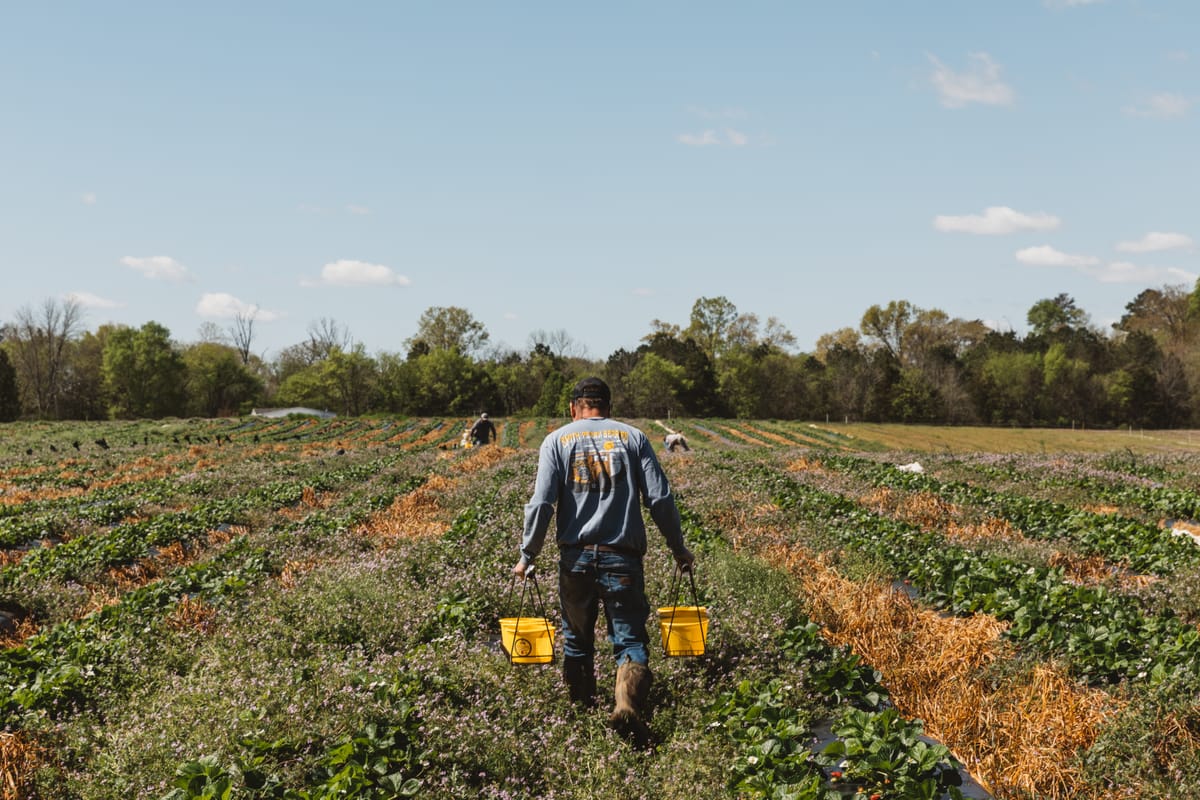
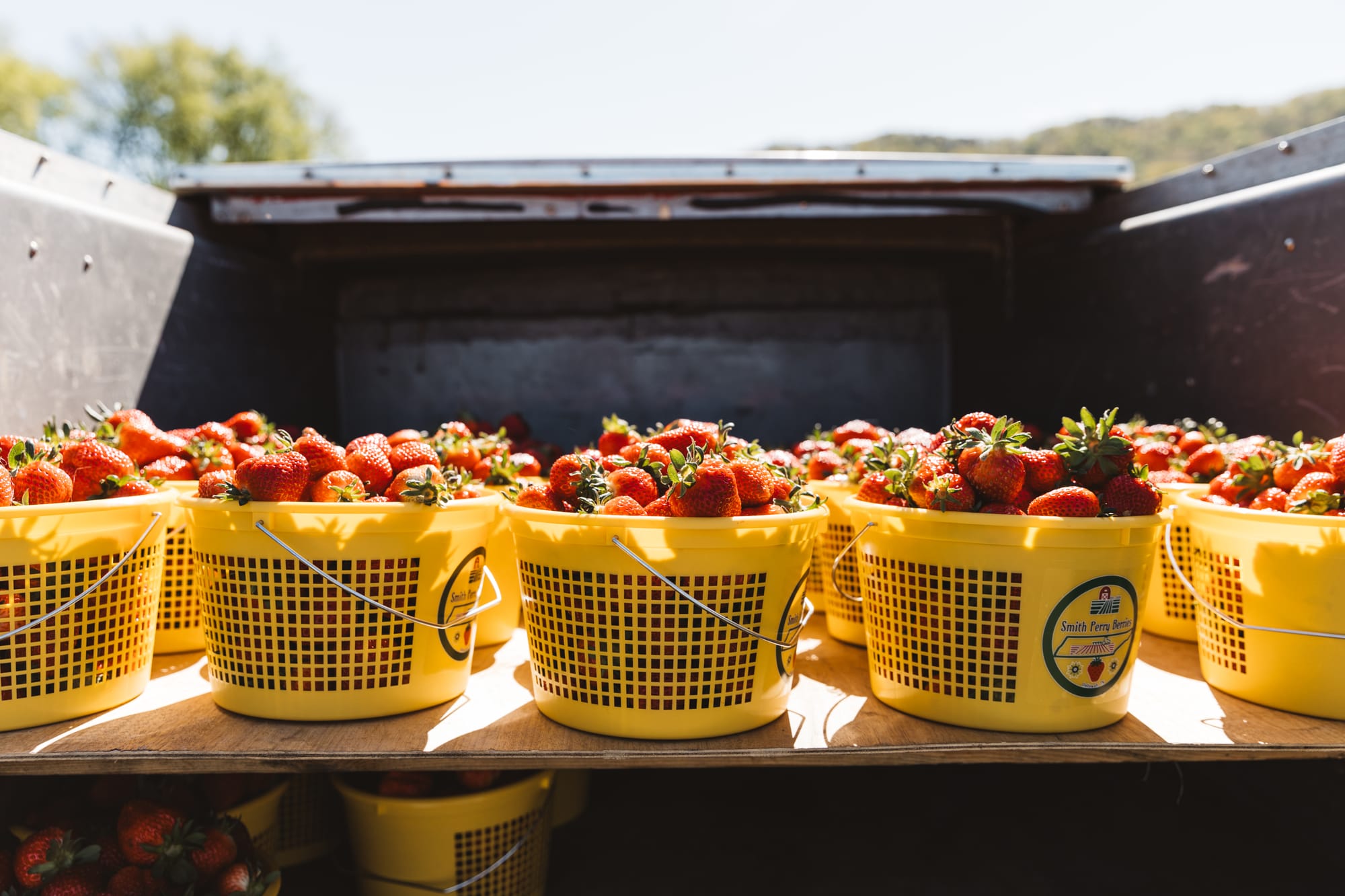
"You tasted them, right?"
People begin arriving by 8.30 am. By mid-morning, there are two, three dozen cars and trucks in line. Tags from North Carolina, Florida, Georgia.
They're here for one reason: Aubie Smith's strawberries.
"It's like this for the next six weeks," said Don Lastine.
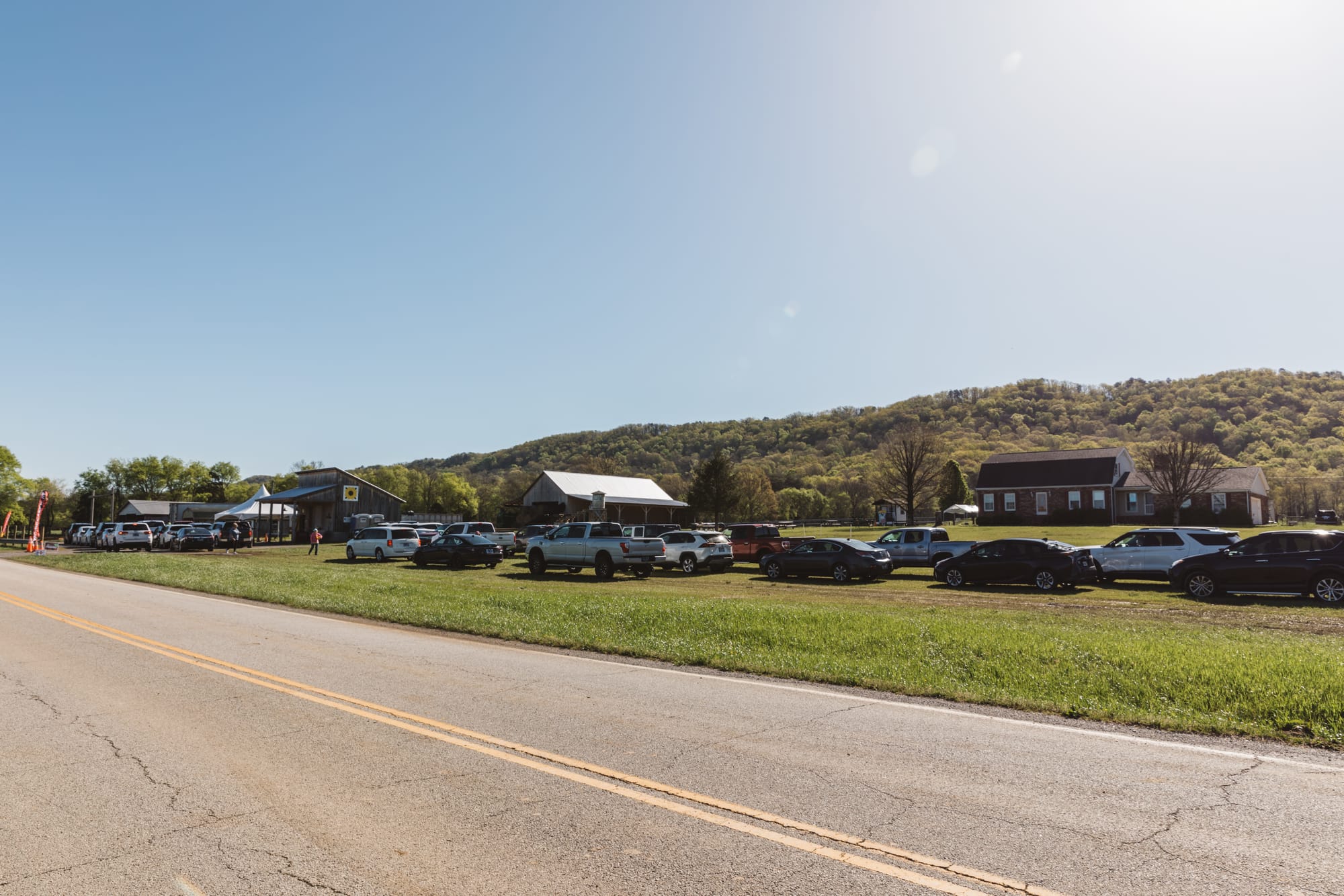
Lastine and his dog Maggie oversee the logistics of an operation that sells 100s of gallons of conventionally-grown strawberries every day at Smith-Perry Berries Farm. As cars and trucks pull into the field off Ooltewah-Georgetown Road, Lastine directs them into orderly lines, remembering who's in front of who. There, folks order strawberries by the gallon.
"We'll sell six or seven hundred gallons," said Lastine.
"Or more," said Euniece Martin, who takes the orders, with wit. ("I'm Euniece, not your nephew.")

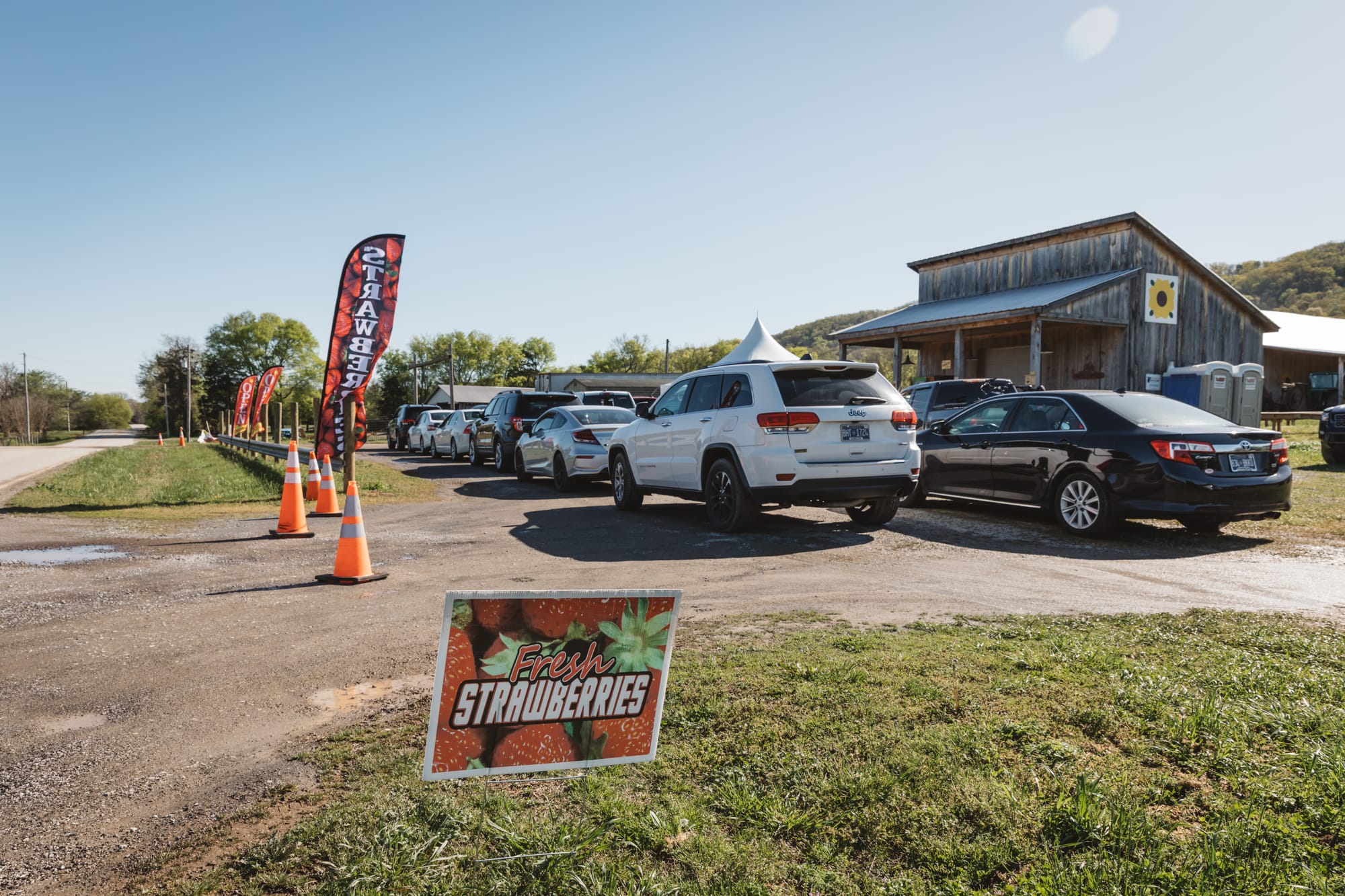
Maggie, Smith-Perry Berries Farm, Ooltewah, Tenn.
Lastine is retired from the US Coast Guard and McKee Foods. A half-marathoner – "I'm only half crazy," he said – Lastine makes sure this all runs smoothly.
"We've already sold 225 gallons," he said. I look at my watch: 10:20 am.
If you drive this long stretch of road that parallels I-75, you will see many things: acres of subdivisions, gas stations selling Powerball tickets, $1 million lots.
You'll also see Smith and his crew, bent over rows of plants, wide-brimmed hats on their heads, picking since 7:30 in the morning. They work in fields across from where Lastine directs traffic. As the strawberries are picked, they go into yellow gallon buckets in a truck bed. Once the bed fills, they're carried across the street to folks in line. This process happens dozens of times a day from now through June.
"When we open at 8, people line up at 6.30," Smith said. "They can't pick them fast enough." (Check the farm's Facebook page for daily info.)
These are the same fields, the same picking, as when Smith's grandfather grew berries 80 years ago.
Things are the same.
Things are also wildly, painfully different.
"This road used to be a pig trail," Smith remembers. Nearby, his arm resting on the open window of a white Ford, Bill Mullins, an old friend who hauls the picked berries to the line of waiting cars, begins speaking about the past.
"I rode a horse to grammar school," he said. "There was not even a red light in Ooltewah when I went to school. The only car you'd see during the day was the mailman until the working people started coming home."
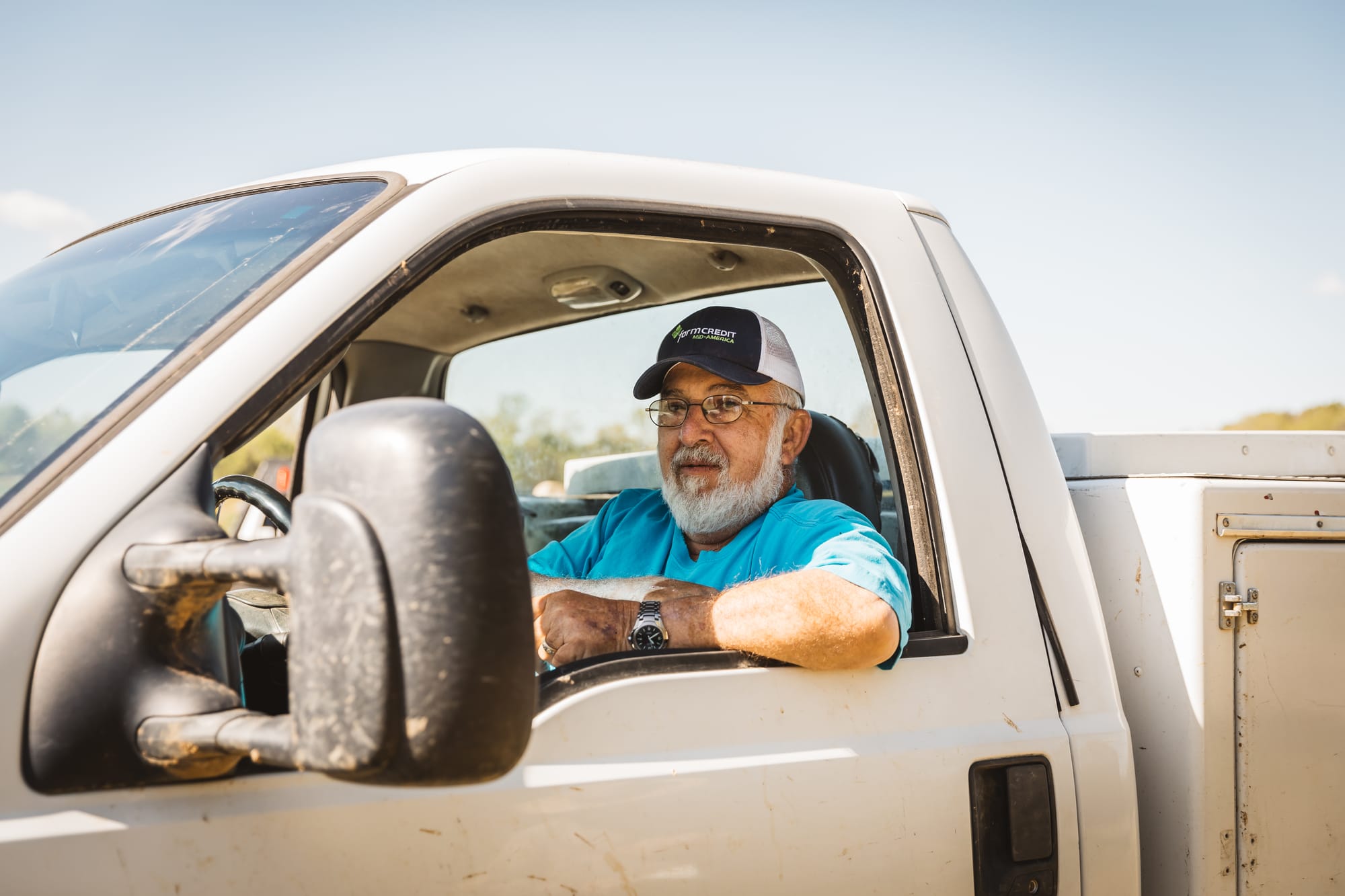
Maybe that's why all these folks line up seven days a week, from now through June, sitting in their idling cars, waiting.
Waiting to taste something unspeakably sweet and delicious.
Waiting to taste something that's precious and pure and feels like it's slipping away forever.
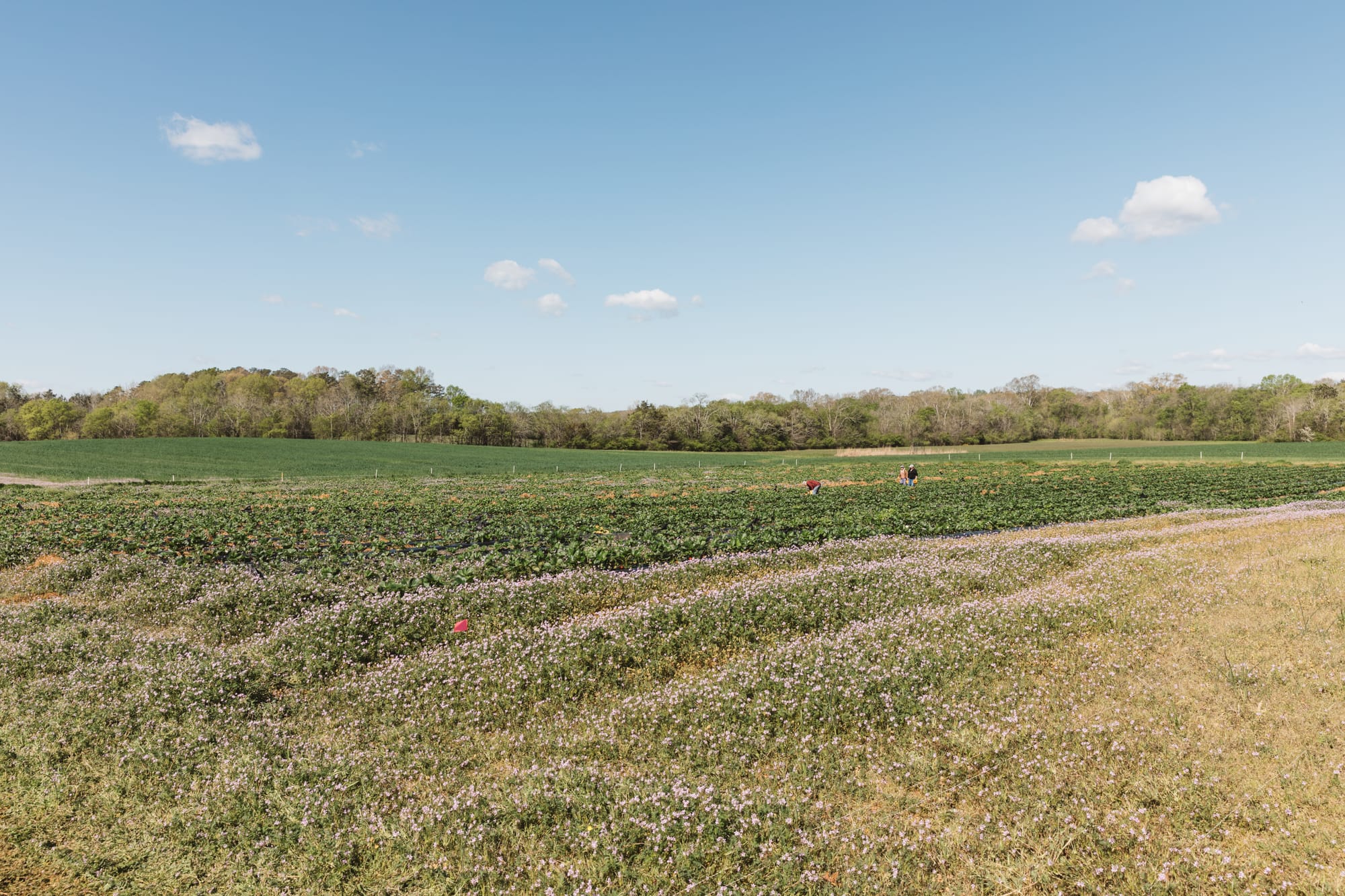
When Aubie Smith was a boy, he and his grandmother used to sit on the front porch in the afternoon sun, just a short walk from these very fields. Each afternoon, they'd play a game.
"Pick three colors. She’d pick. I’d pick. When a car comes by, you get a point for that color," Smith remembers.
It was a good grandmother game; Smith always got to choose first.
"Uncle Bill drove a blue truck, so I’m picking blue. Pa-paw drove a red truck, so I'm picking red," he said. "It's an automatic two points."
There was nobody else on the road.
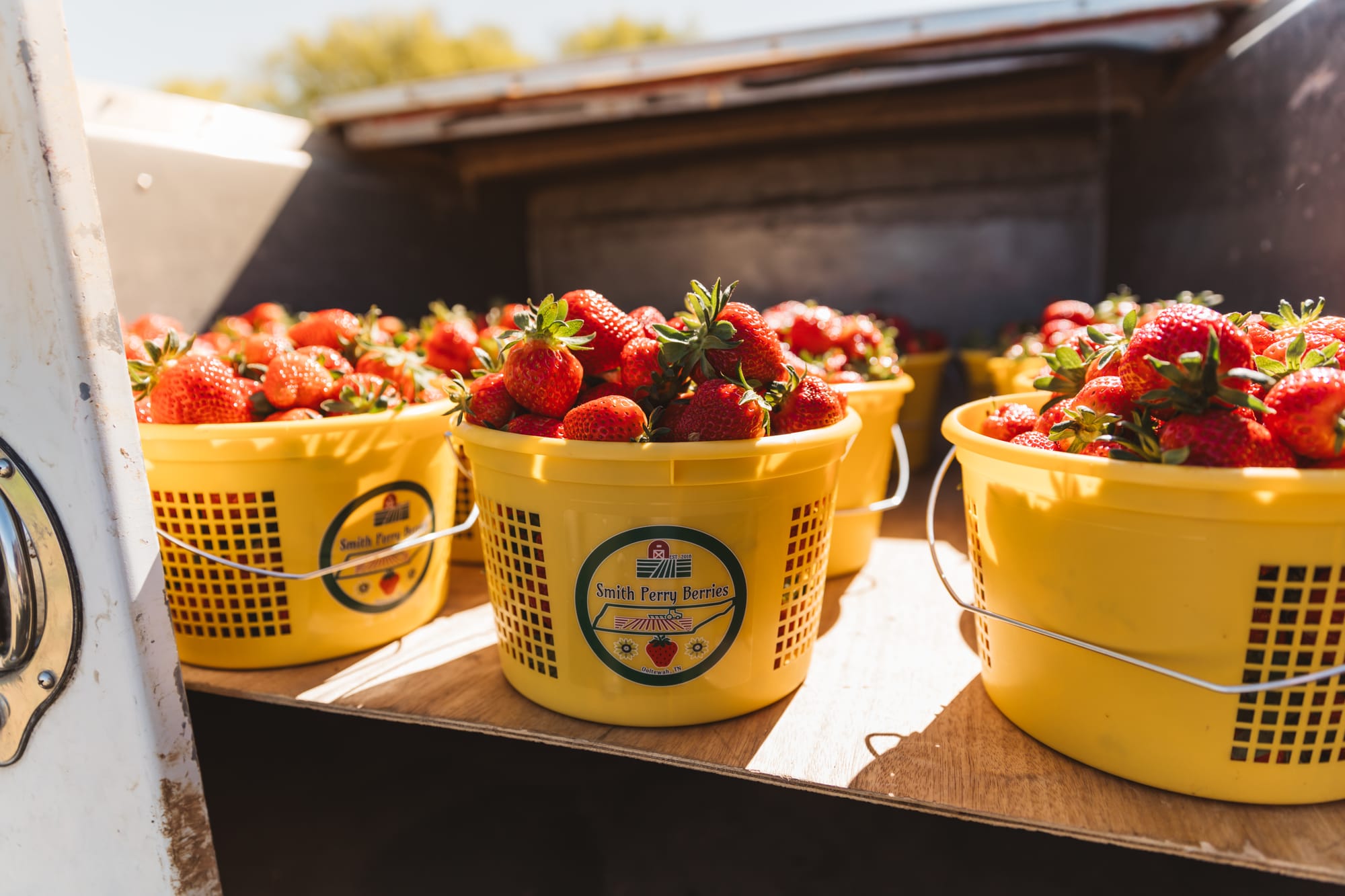
Smith-Perry Berries 9626 Ooltewah-Georgetown Road
Today, traffic roars by; subdivisions grow like mushrooms after rain; nearby from Smith's fields, land is selling for nearly $1 million.
So when this man plants strawberries, pumpkins and sunflowers, he is doing more than growing fruit and flowers. He is planting roots, identity, meaning; without him, well, you tell me: where are the young Ooltewah farmers?
"Aubie," said Mullins. "Other than that? They're all gone."
Mullins leaned in, making sure we heard him.
"He works day and night. He works from the time he gets up till the time he goes to bed," Mullins said. "He’s good for the community."
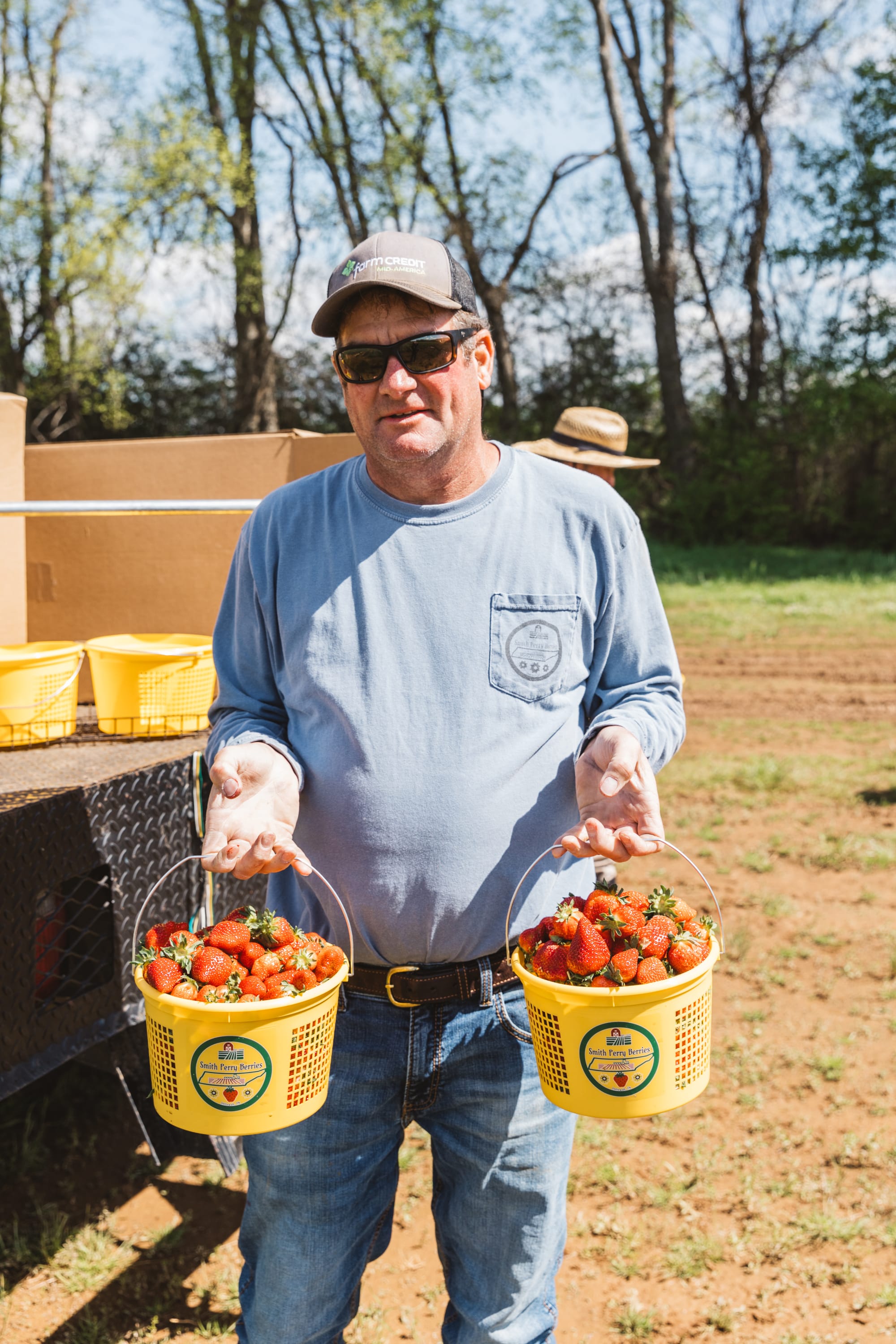
Smith, 55, graduated Ooltewah in 1986 and after college – UT-Chattanooga and Chattanooga State – worked at UPS where he and Bill Perry began farming together. (Smith and his wife Michelle are the owner and operators of Smith-Perry Berries Farm; they bought out Perry, who'd retired from the trucking industry, a few years ago.)
At the time, Smith was also an independent Hamilton County bus contractor. Over in Rhea County, Ray Tidwell was growing strawberries and needed help transporting H2A workers – government-approved temporary agricultural/migrant workers – to the grocery store and whatnot.
Tidwell asked Smith to drive that bus. He said yes.
"For 19 years," Smith remembers. "Every Saturday or Sunday, I hauled workers to Walmart and the Mexican store to wire money."
Smith, though, had other dreams. "I've been farming my whole life," he said. Thought about dairy cattle, but ....
"It didn't pencil out," he said.
Several years back, Tidwell called: I'm getting out of strawberries.
Smith: I'd love to grow them.
Tidwell: Why didn't you say anything before?
Smith: Didn't feel right. Didn't want to compete with you.
Tidwell: Well, I'm going to help you get started.
"That was seven years ago," said Smith. "This is my seventh crop."

Food as a Verb thanks Little Coyote, our sustaining partner, for its generous support.
Now open in St. Elmo, Little Coyote blends together Texas barbeque, Cuban, Caribbean and Southwestern influences – smoked meats, stunningly original tortillas, 100 varieties of tequilas, sotols and mezcals – for a family-style restaurant experience unlike any other in Chattanooga.
Each fall, Smith orders around 200,000 strawberry plants – they begin as tips, or runners – from Canada, which are then developed into plants by a grower in West Virginia, who ships them to Ooltewah in October or November.
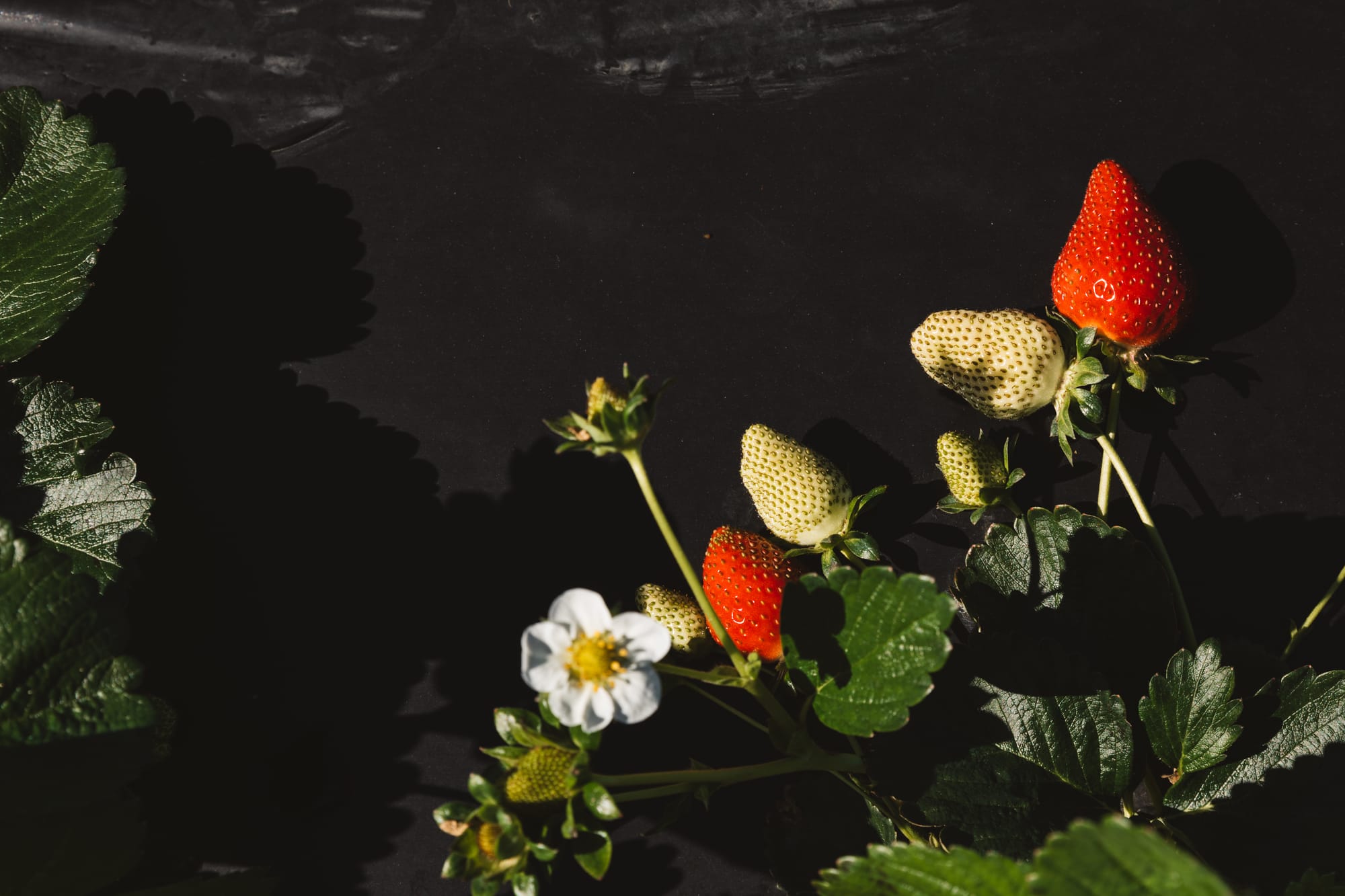
When Smith started growing strawberries, he only grew one acre's worth. Now?
"Sixteen," he said.
Started at $15 per gallon. Now, it's $20 gallon buckets.
"We haven't raised prices in three years," he said.
We are standing in his field when Smith offers us the first bite of a spring strawberry. Picked moments ago, it is simply red, simply beautiful. With one bite, we know: this is why there's a field of cars 10 deep from Florida, Atlanta, North Carolina, buying as many gallons as they can.
"I love to see people happy. People lined up for these strawberries," he said. "You tasted them, right?"
Tasted them?
We devoured, cherished, savored, thanked God for them.
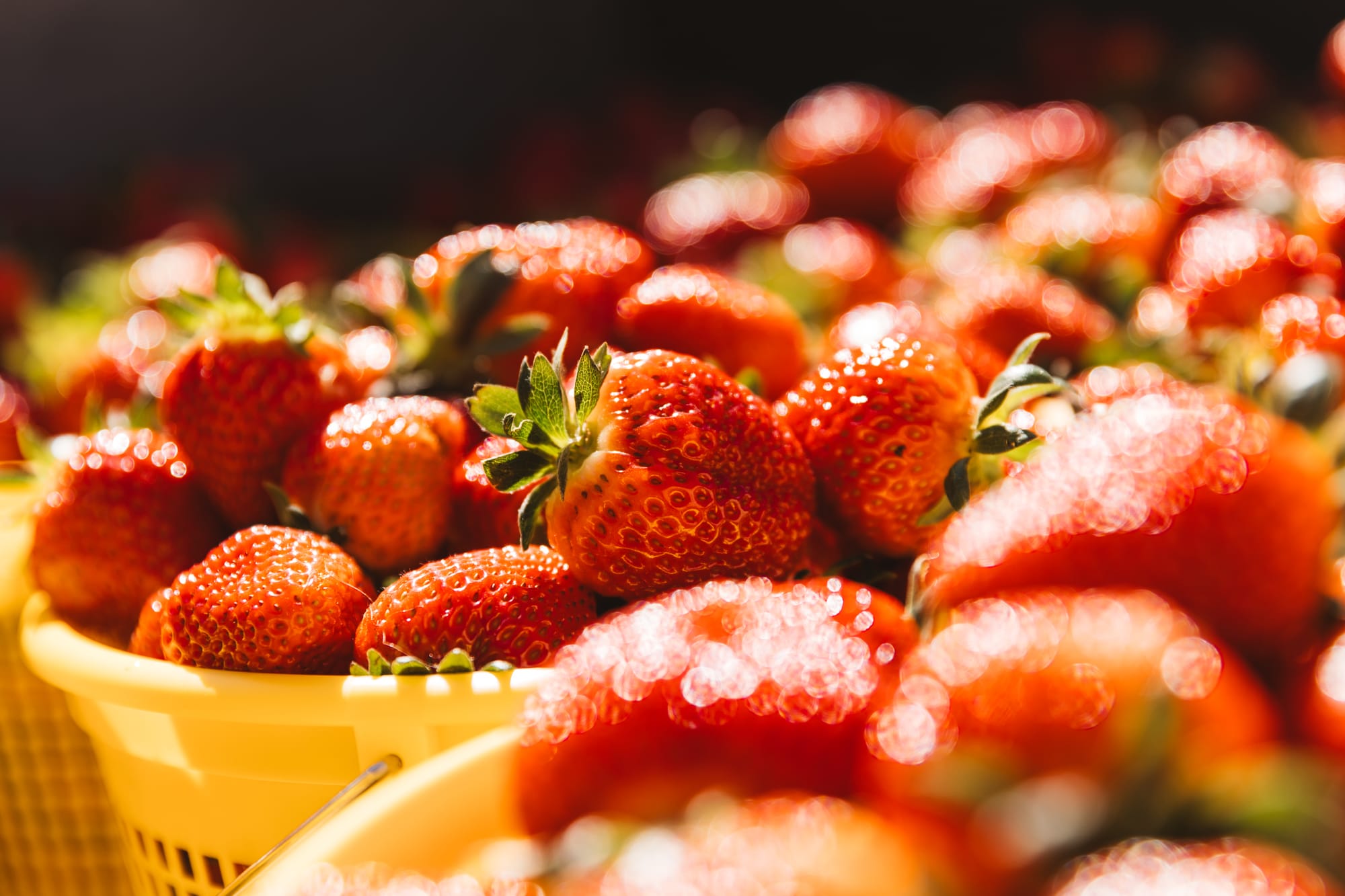
Each fall, Smith and his crew plant new strawberry plants in rows across 16 acres. Those plants will fruit the following spring; then, they plant pumpkins for the fall, sowing them by hand and with a machine.
"The crops are better when planted by hand, but the machine's quicker," he said, summarizing the great industrial age quandary.
He sells pumpkins by the bin. Smith also grows sunflowers; folks also come wander and selfie through 30 acres of sunflower fields, Van Gogh-ishly gorgeous in the Tennessee summer.
Pumpkins that don't sell he feeds to cattle; he has 150 "mama cows" on another 178 nearby acres. Sunflower stalks fold and melt back into the ground.
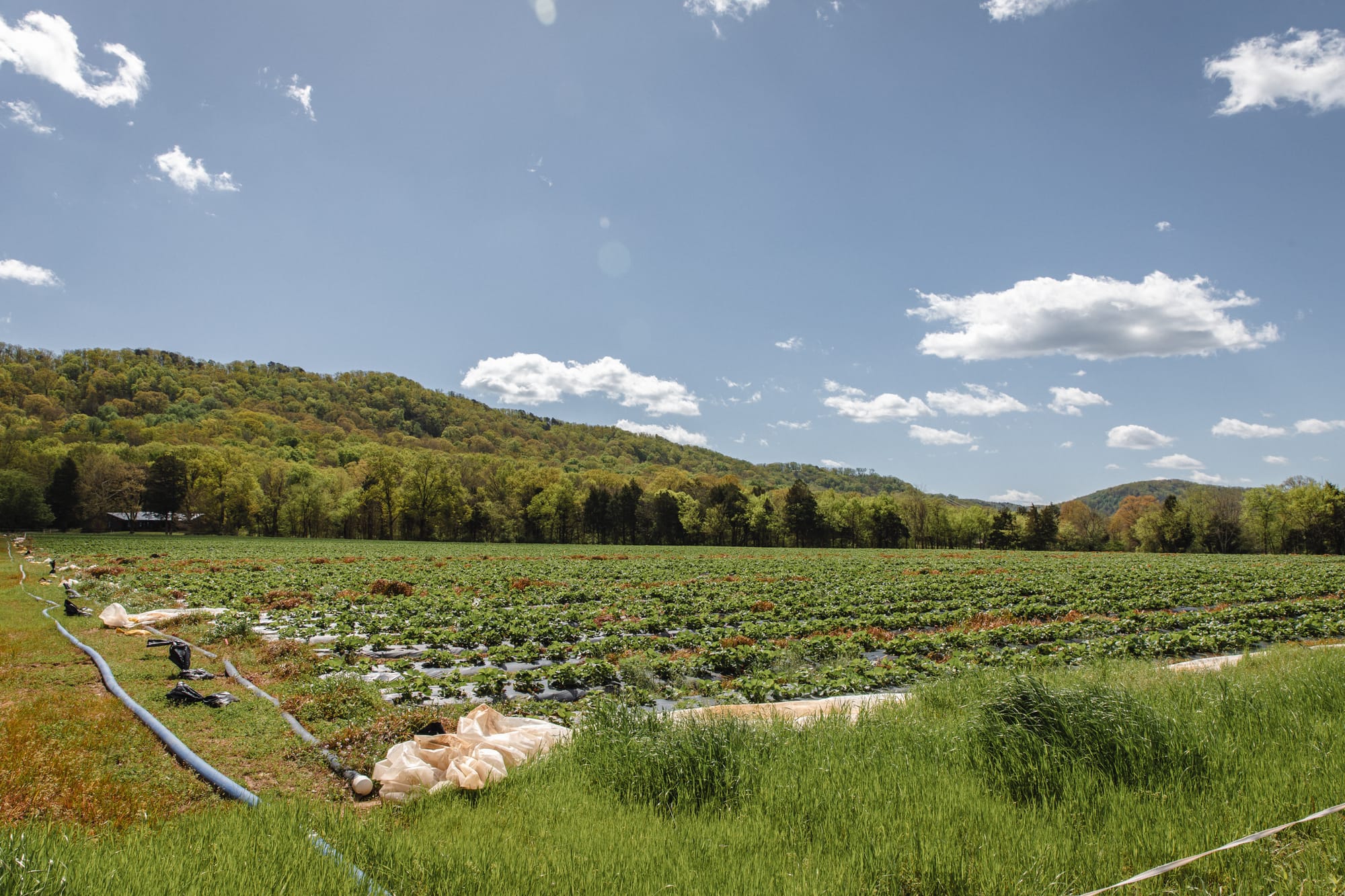
It is all deceptively perilous. Standing in the lush strawberry fields, it all looks tranquil and green. You don't see the threats. But Smith knows all too well: the whole shebang can collapse after one night.
"Hail," he said, pulling out his phone.
"This is a farmer over in Camden. He had a hailstorm a couple of nights ago," he said, showing the photo of a ruined and devastated strawberry field.
"It's awful. Look at that. He's done. No strawberries at all," Smith said.
The list of potential devastations is long.
"Frost. Cold weather. Hail," Smith begins. "Diseases. Deer. Spider mites. Rain. You don't want any rain in May. The water damage beats them up."
He can protect his fruit under row covers when it drops to 25 degrees. Colder than that?
"Last year, when it went to 15, we lost a lot of strawberries," he said.
And the markets can be as achingly volatile as the weather; he pulls out his phone to check: corn prices are gutter-low.
"I always tell people that farmers is the only person that buys retail and sells wholesale," he said.
So why stay in farming?
"I love it," he said.
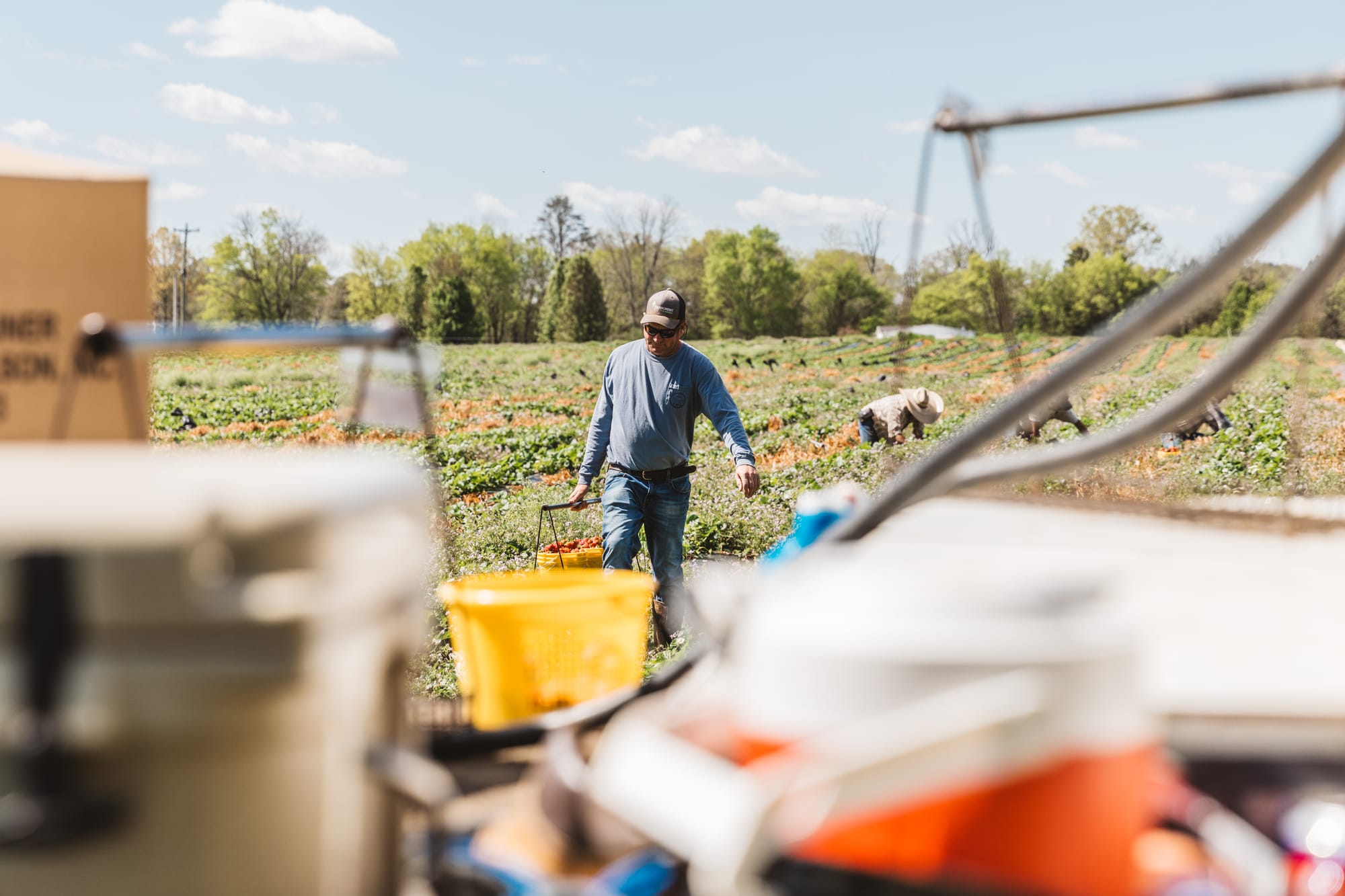
"I love being outdoors," he began. "I love watching things grow. I love to see baby calves running across the field with their tails over their back when they're four weeks old. I love watching strawberries go from the white bloom to berry. I love seeing other people enjoy it."
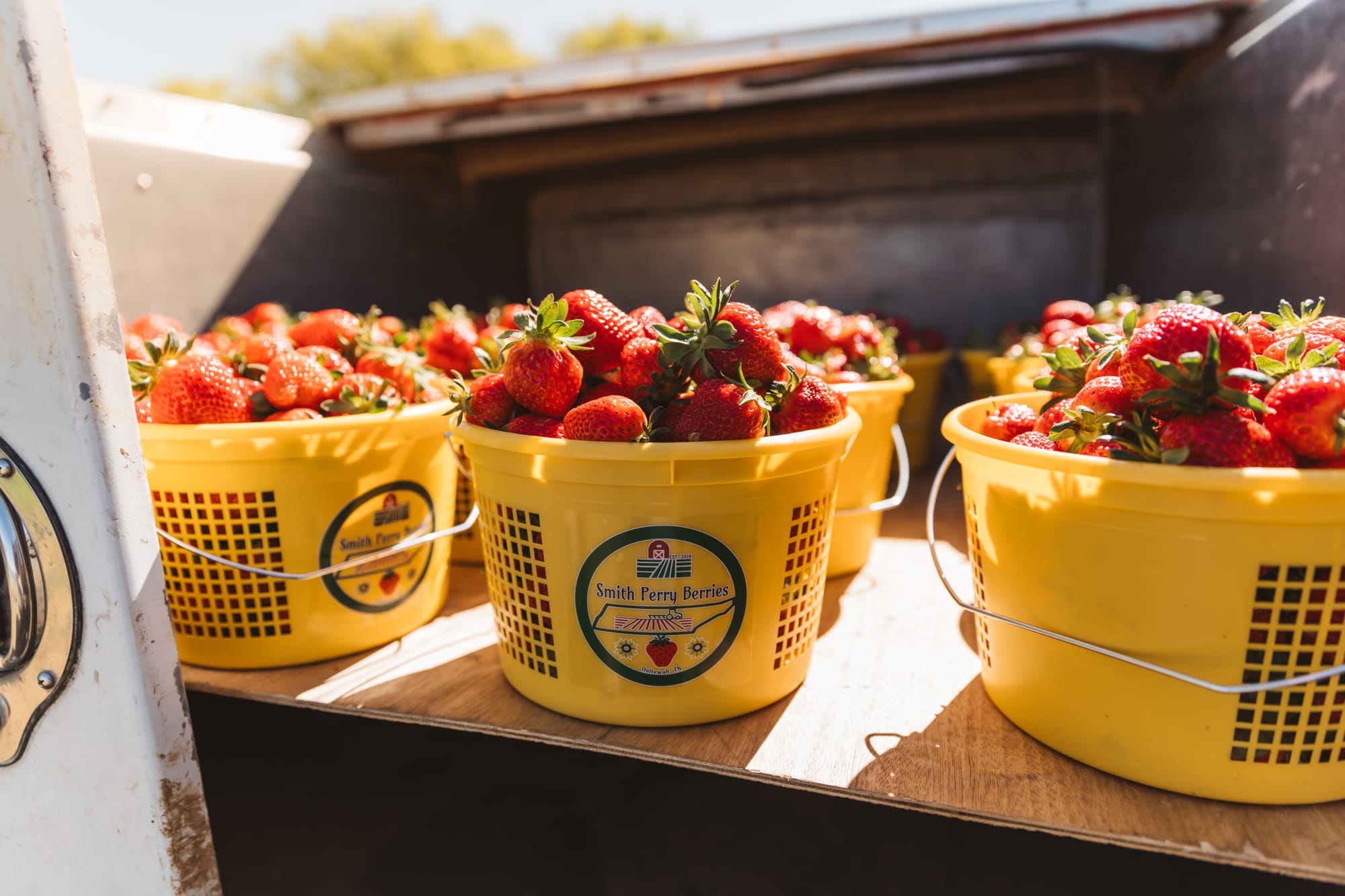
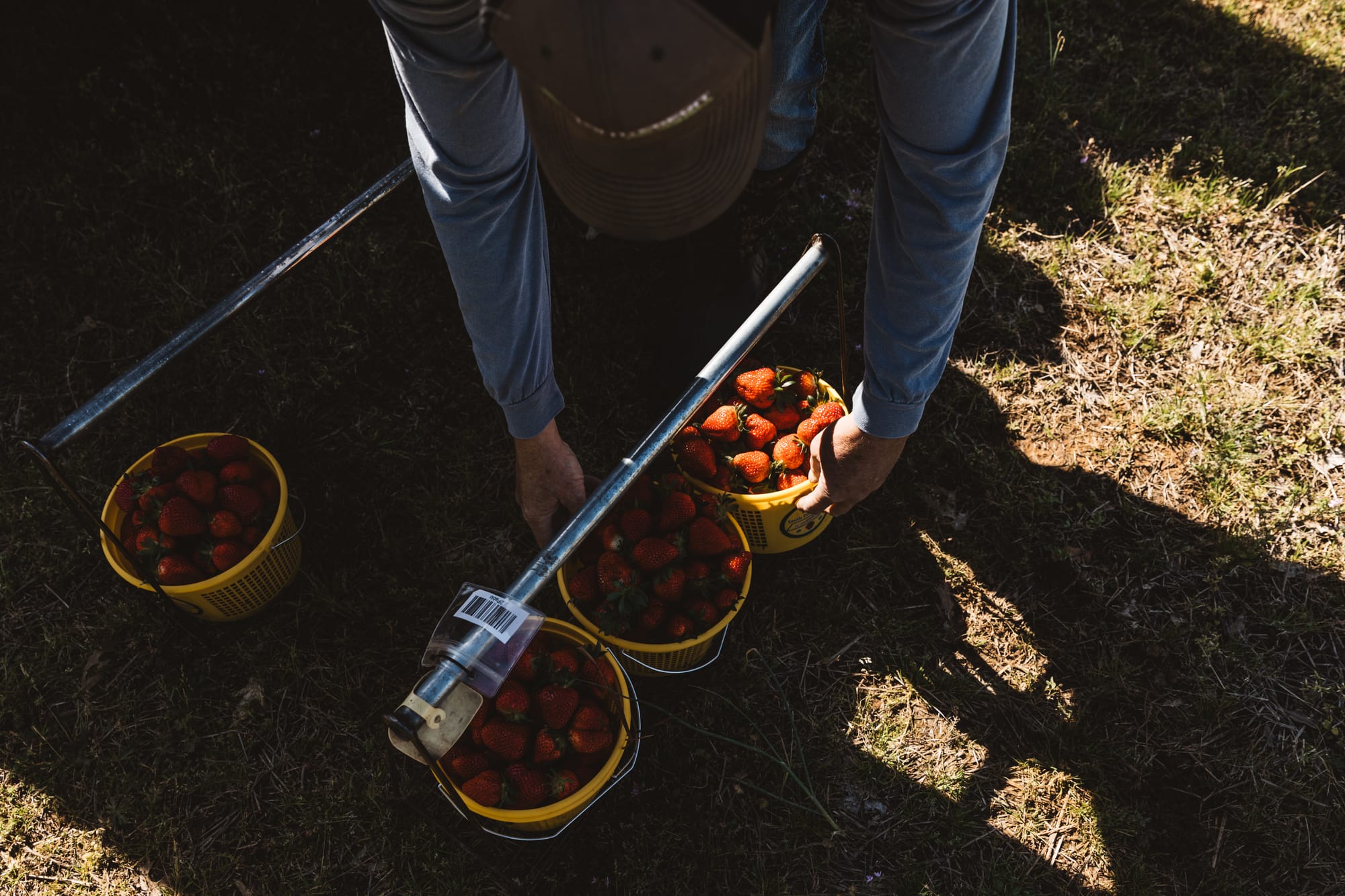
Strawberries, Smith-Perry Berries Farm, Ooltewah, Tenn.
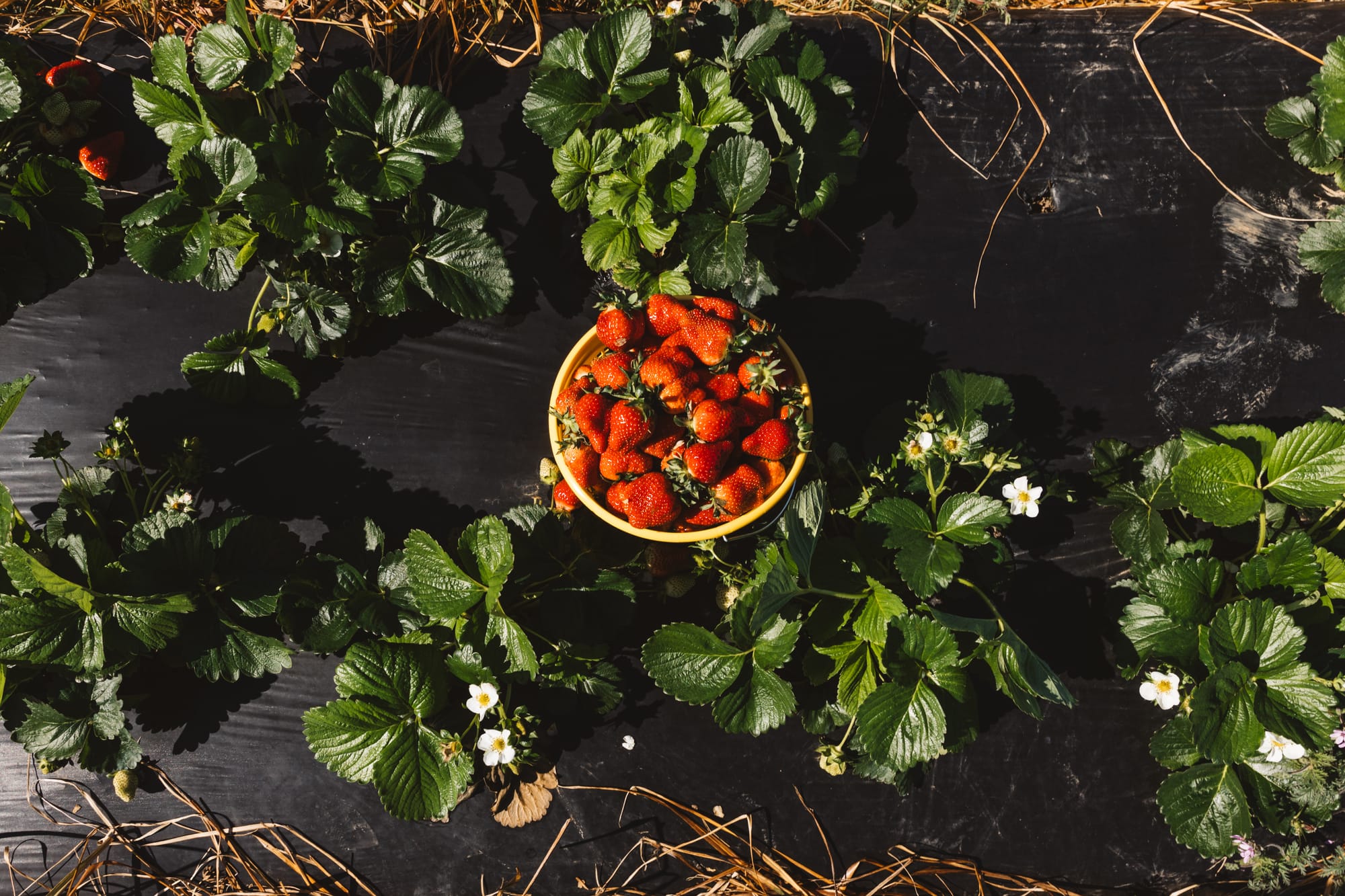
"I've been farming my whole life. I know what can go wrong. ... it's a risk. A gamble," Smith said, reminding us of the farmer's motto: "prepare for the worst, pray for the best."
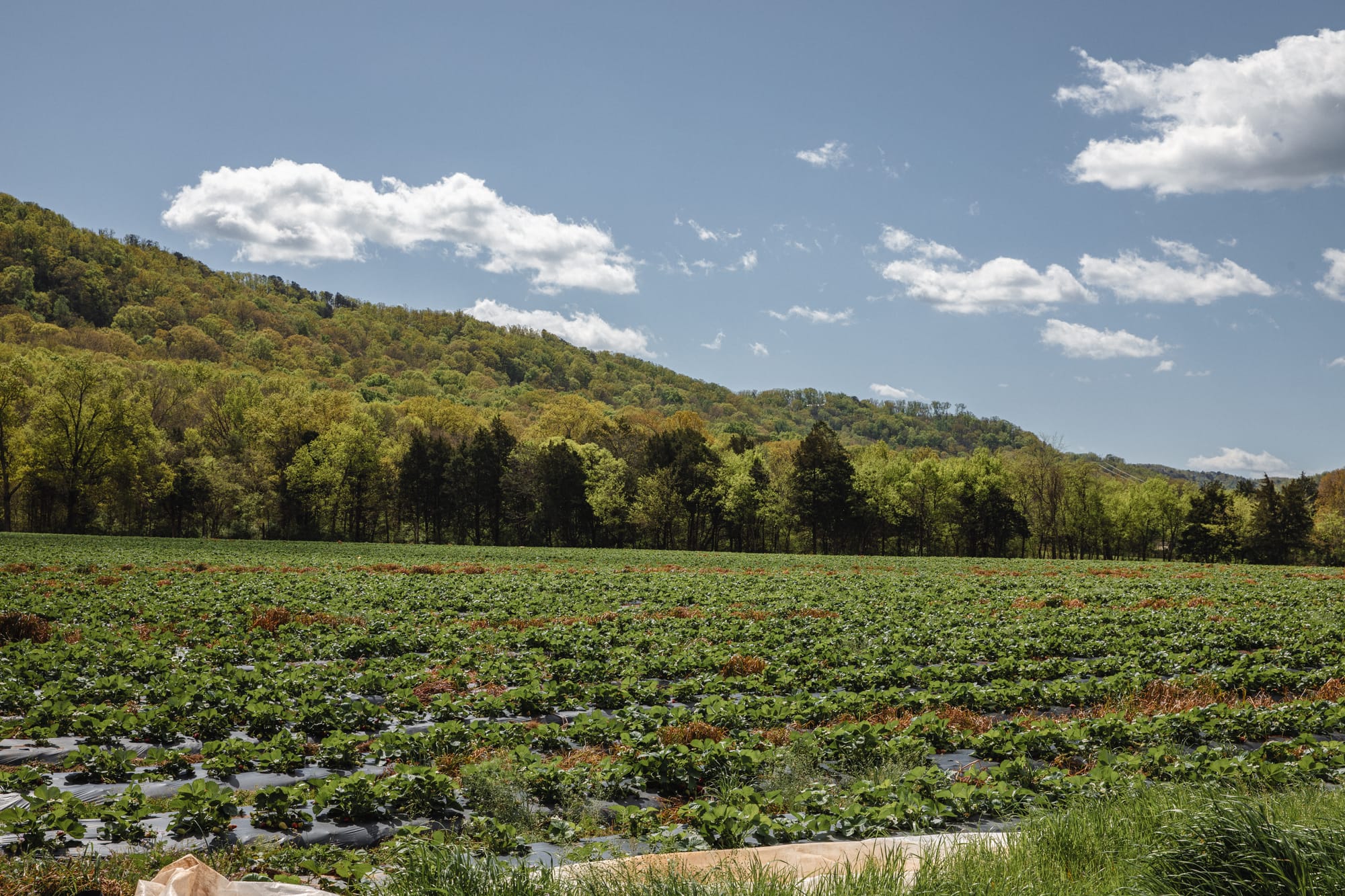
Smith called farming a "13-month-a-year job."
"It's labor intensive," he said.
Out in the fields, Smith's crew continued to work under wide-brimmed hats, bending on knees that go up-down a thousand times a day. One woman, Lizzy Cox, who said she used to work for Tidwell in Rhea County, has been "picking strawberries for 40 years."
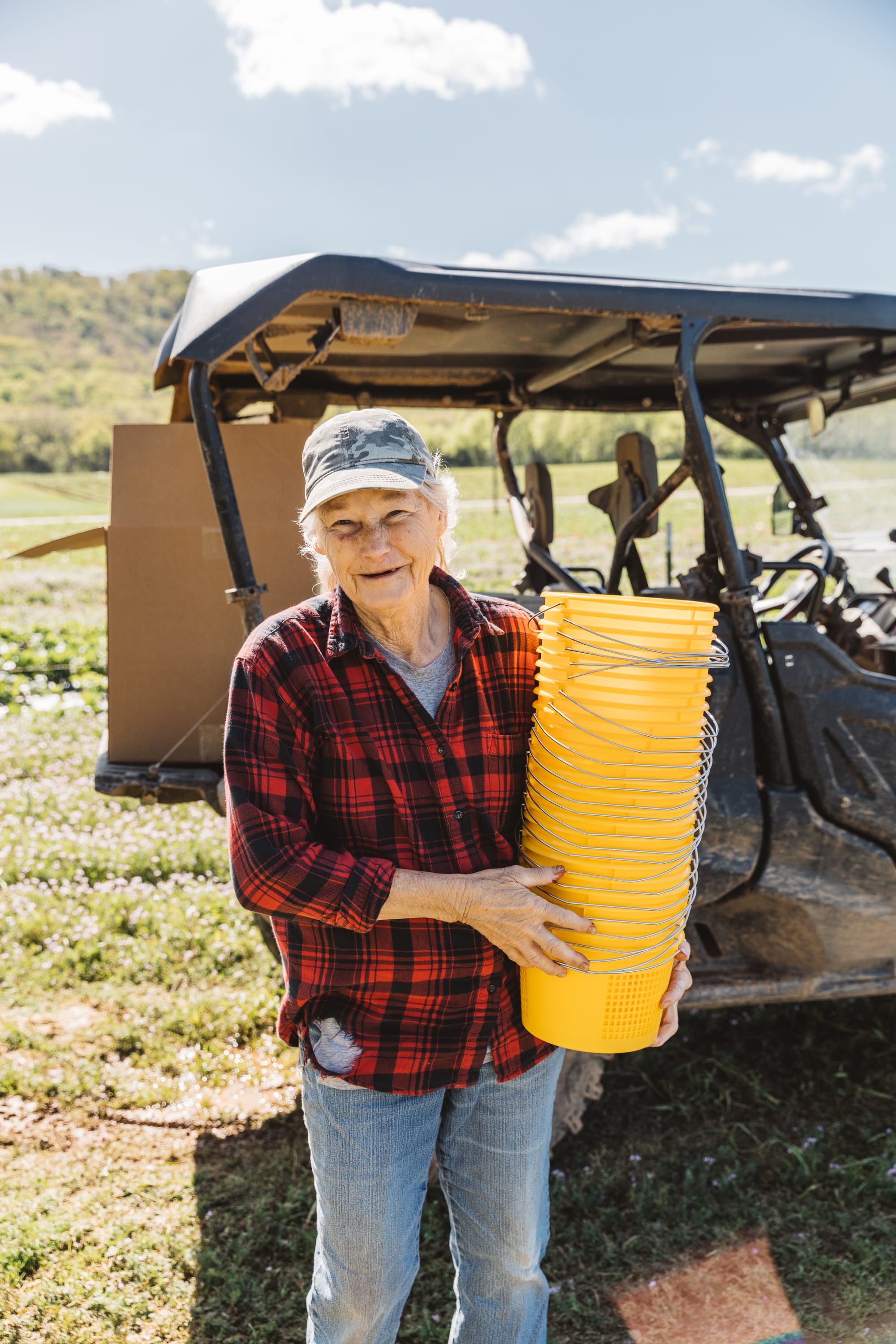
The other workers came from Mexico. Smith's crew is mostly comprised of H2A workers: government-approved temporary agricultural workers.
Their home? Monterrey, Mexico. Their temporary home for 10 months? Ooltewah.
"I provide housing," said Smith. "They live in the house I grew up in."
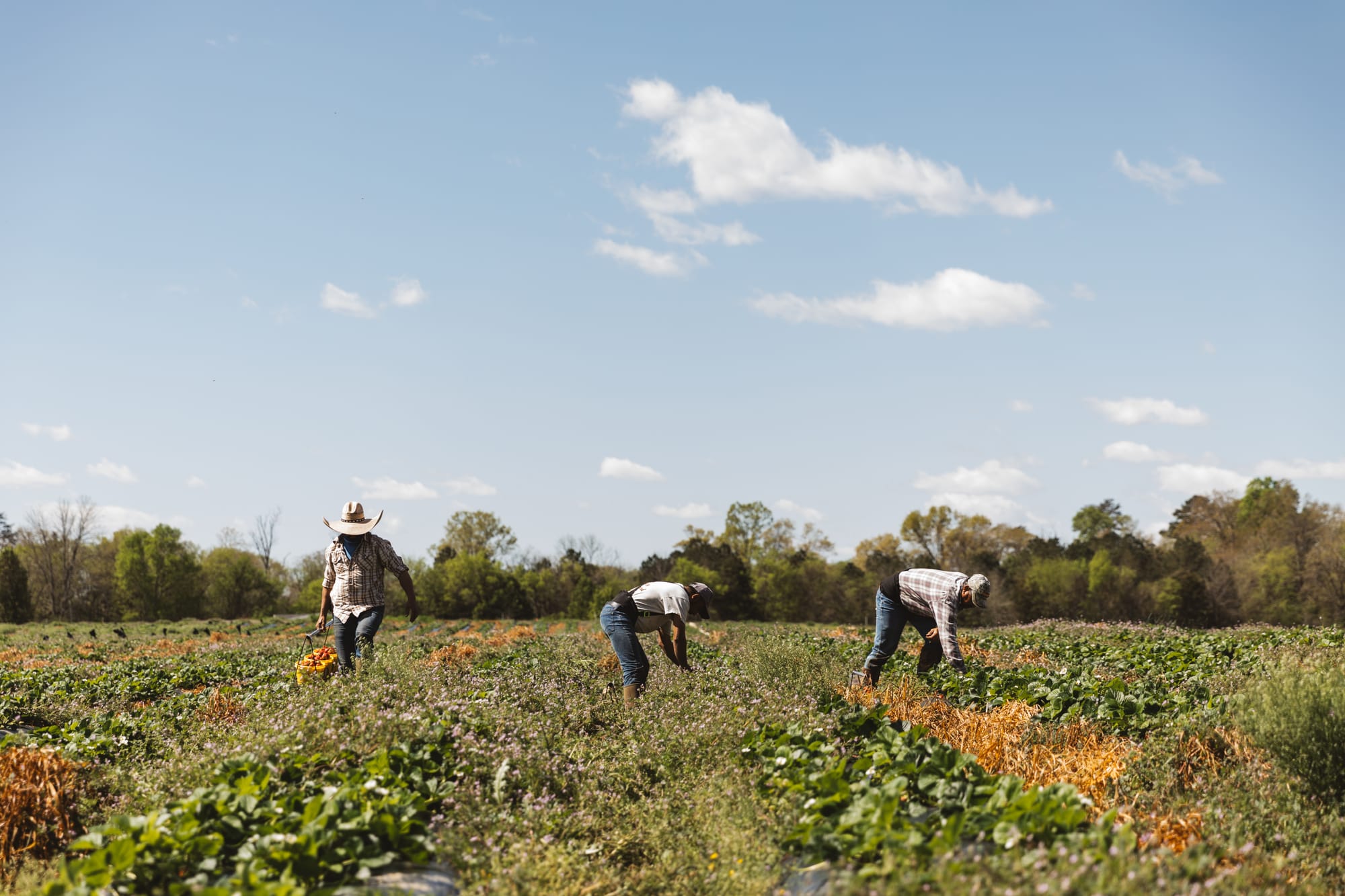
Both Smith and Mullins spoke so highly of these men, as if their labor – the way they worked, "they get itchy if we don't have work for them," Mullins said – represented one more thing being lost in America.
"It's harder and harder to find people to work," Mullins said. "Everybody wants an office job it seems like."
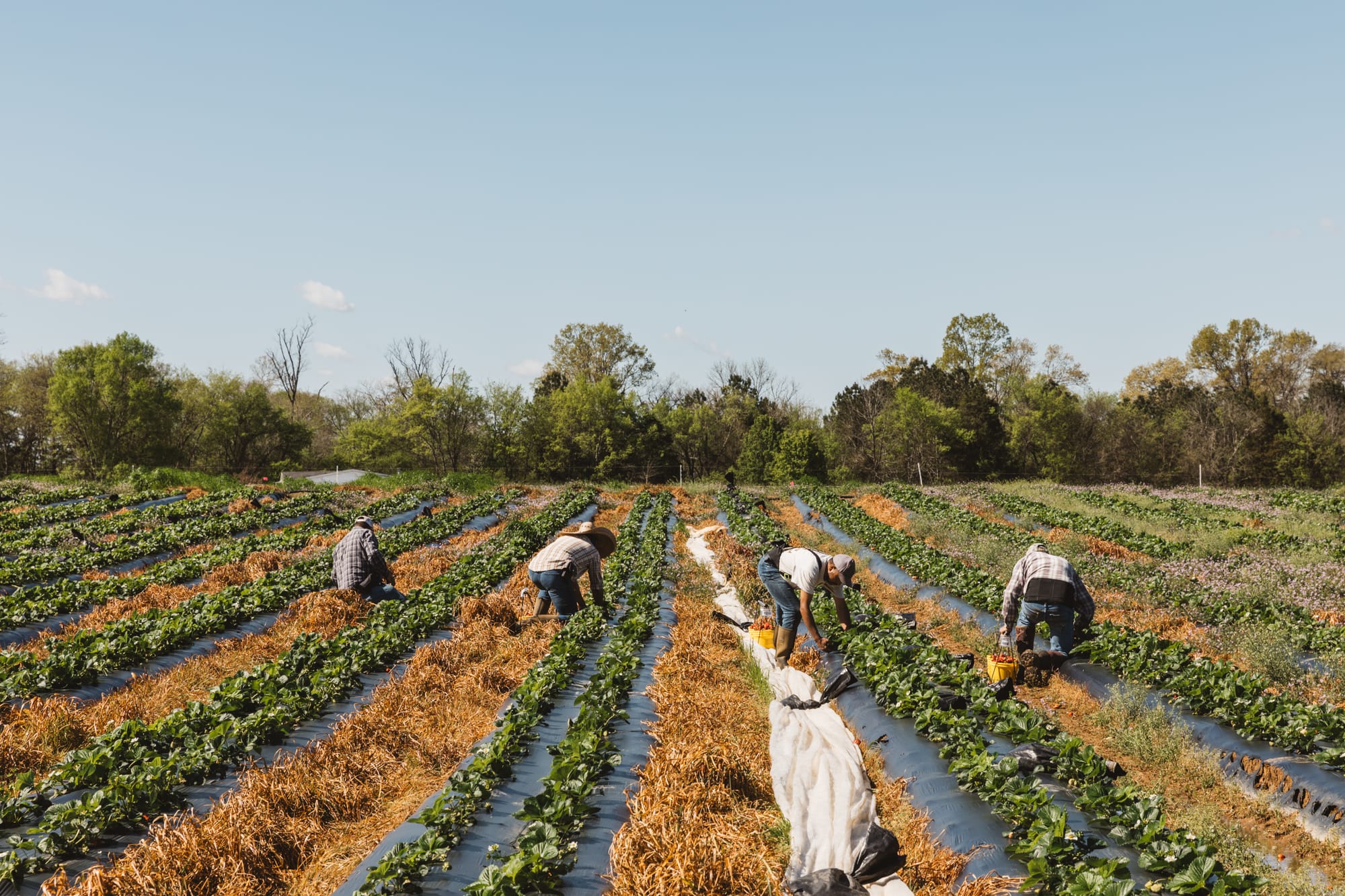
As we spoke, a bus was making its way on a long 36-hour drive from Monterrey, Mexico, hauling more workers to Smith.
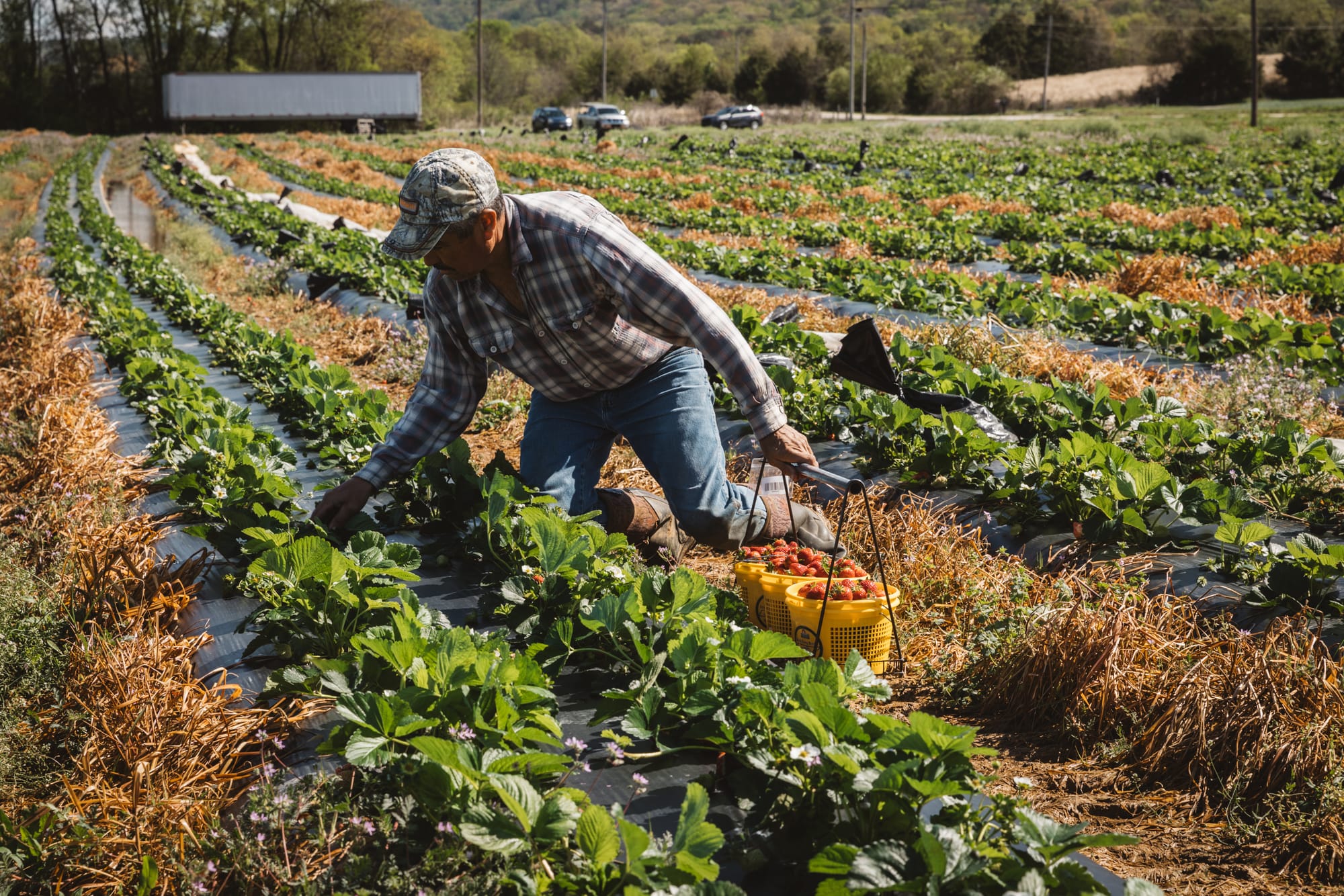
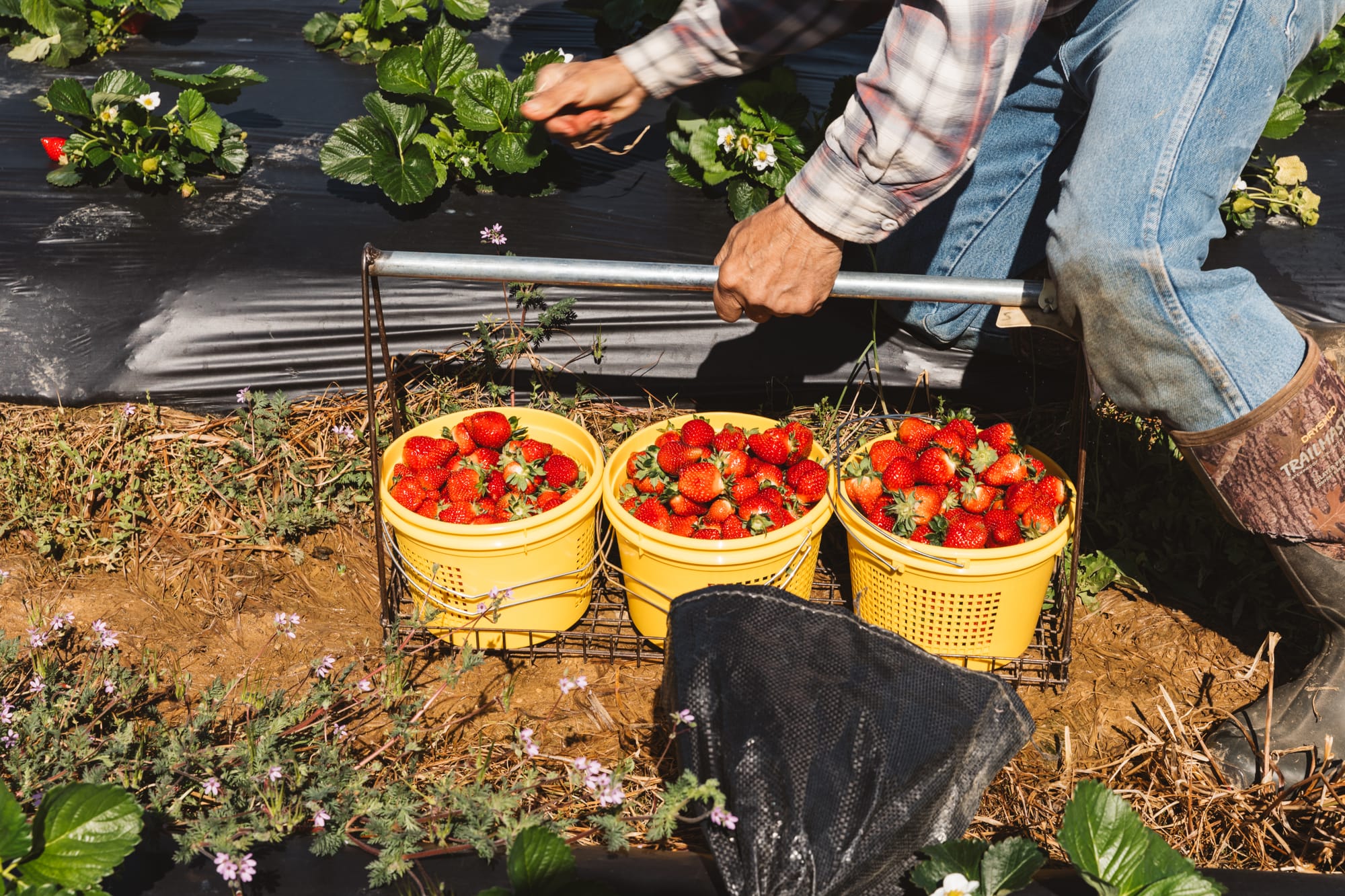
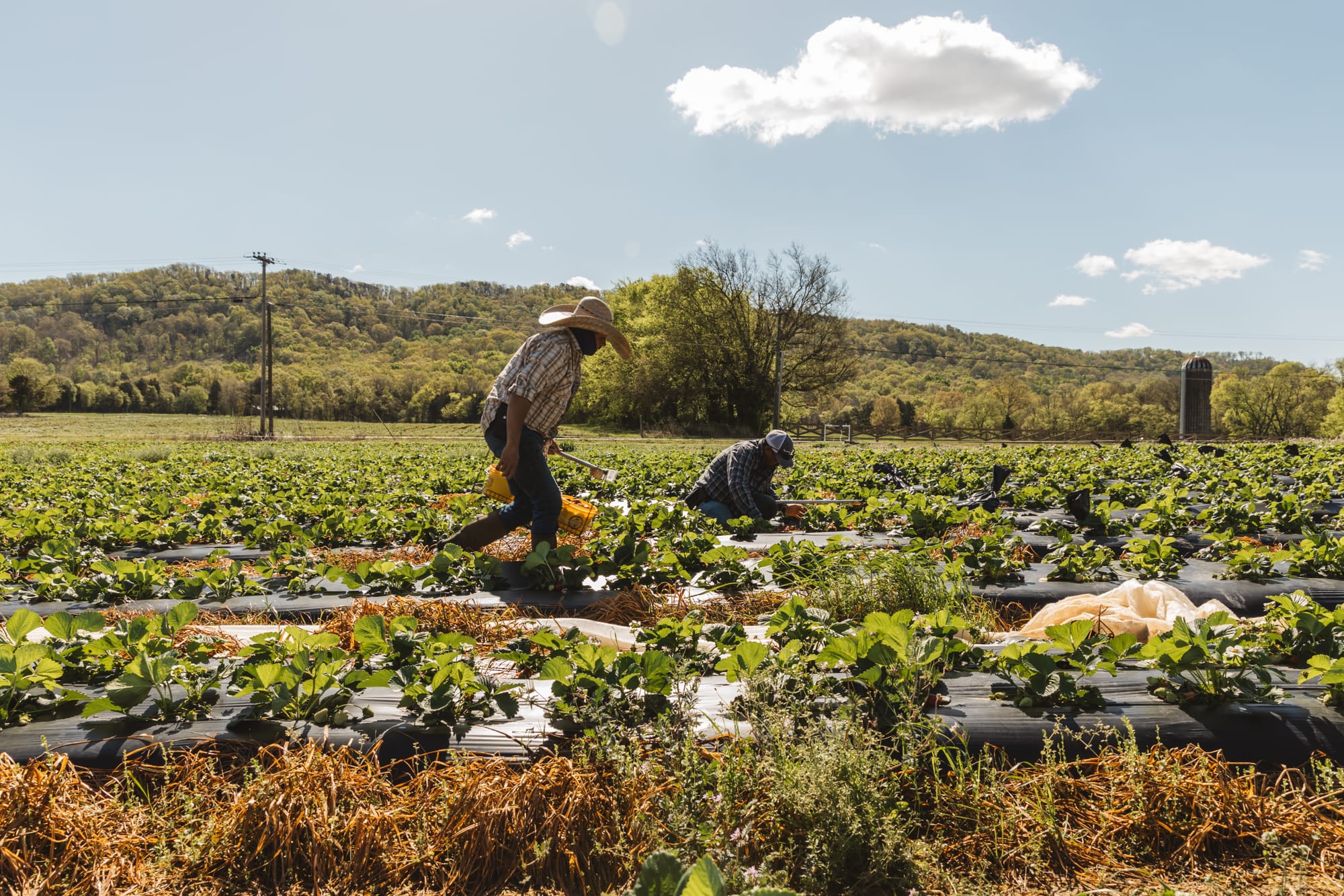
Smith-Perry Berries Farm, Ooltewah, Tenn.
Emerging from the fields, carrying a few dozen gallons, walks Pablo Chavez, who left behind his family in Monterrey, Mexico.
"Pablo hasn't been home since January," Mullins said. "He wasn’t even there to see his grandchildren born."
Somewhere in the far distance, that 36-hour bus makes its way towards Ooltewah, carrying two of his sons, who'll work for Smith through the summer and fall.
The bus is expected to arrive this morning.
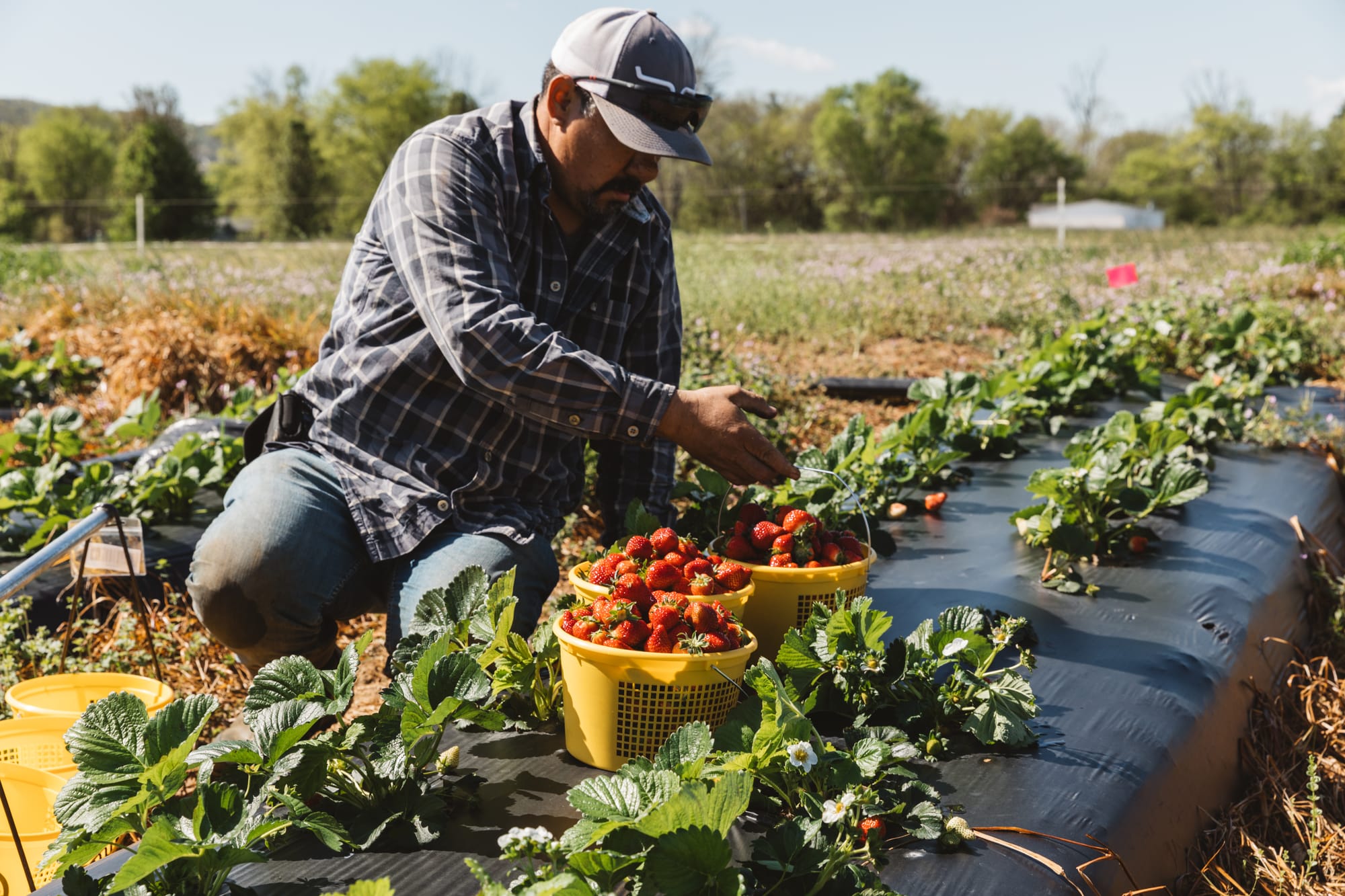
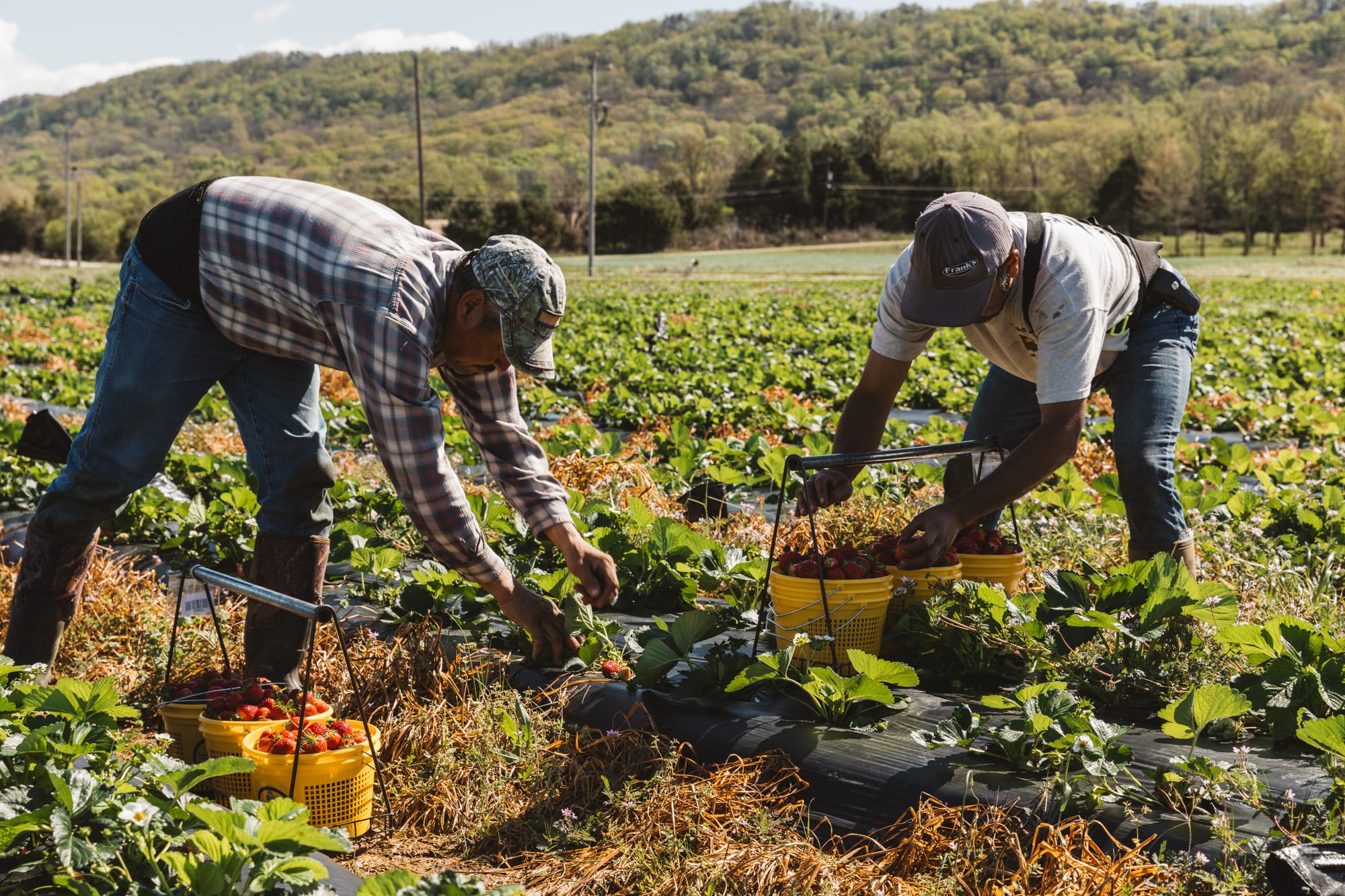
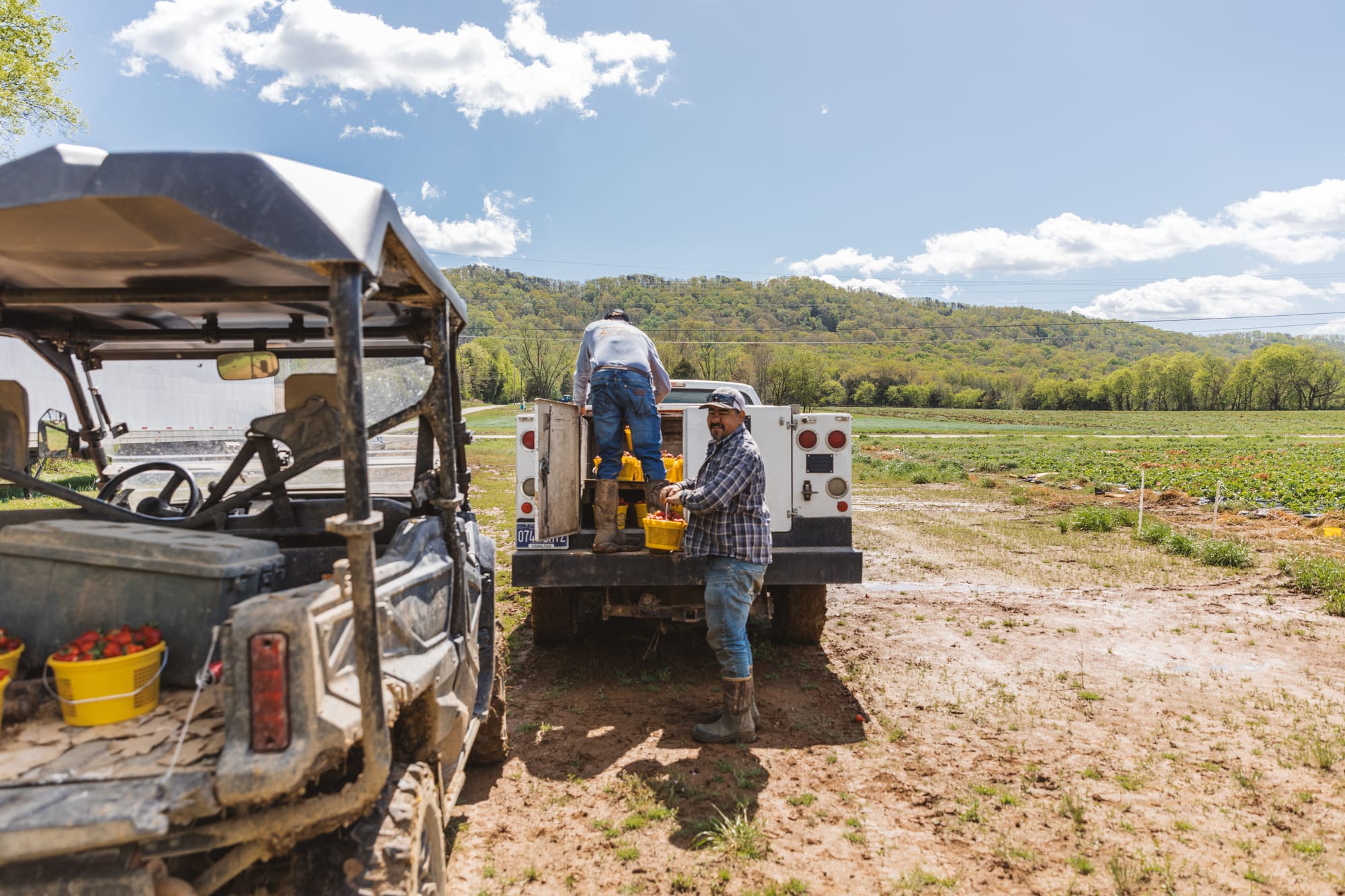
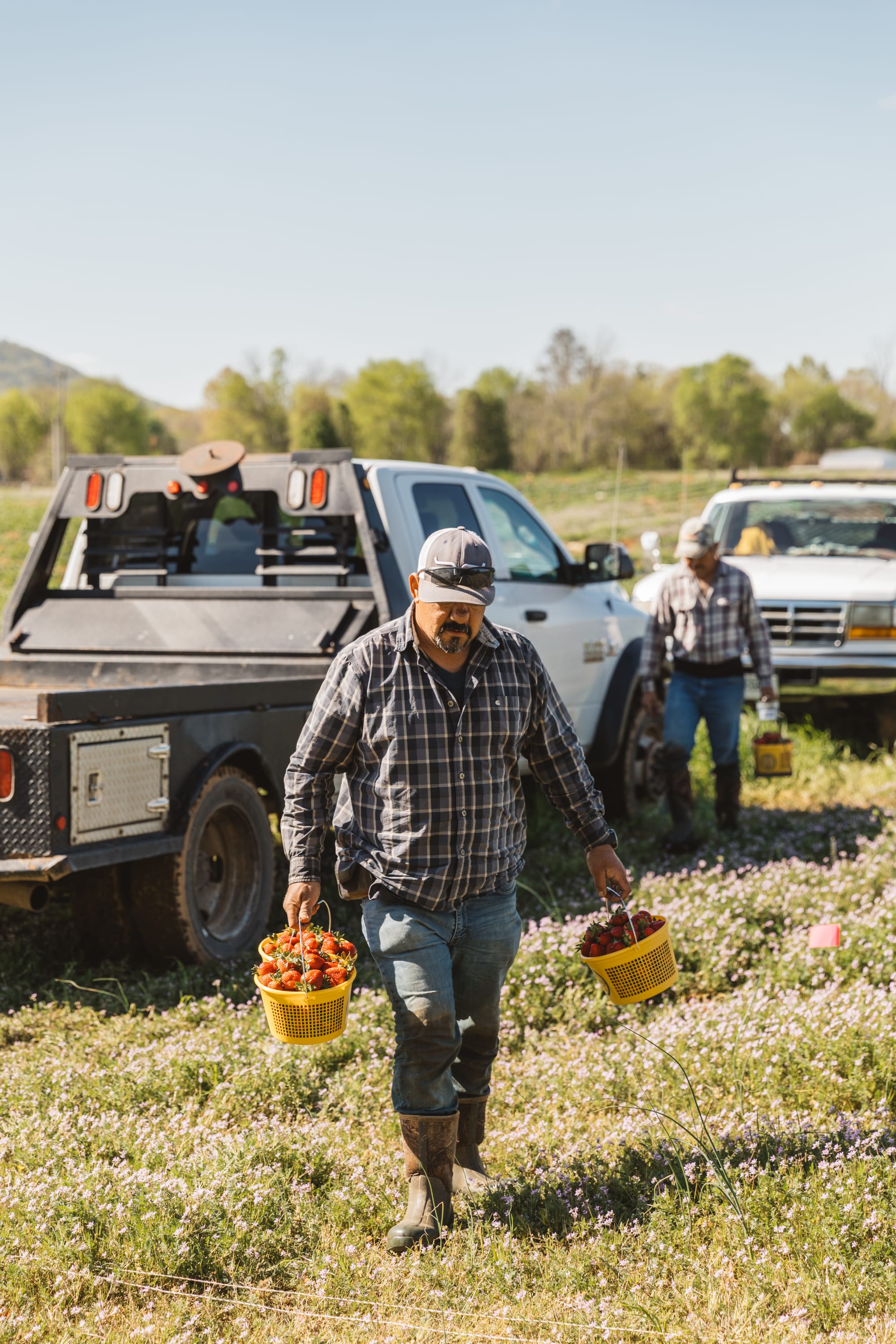
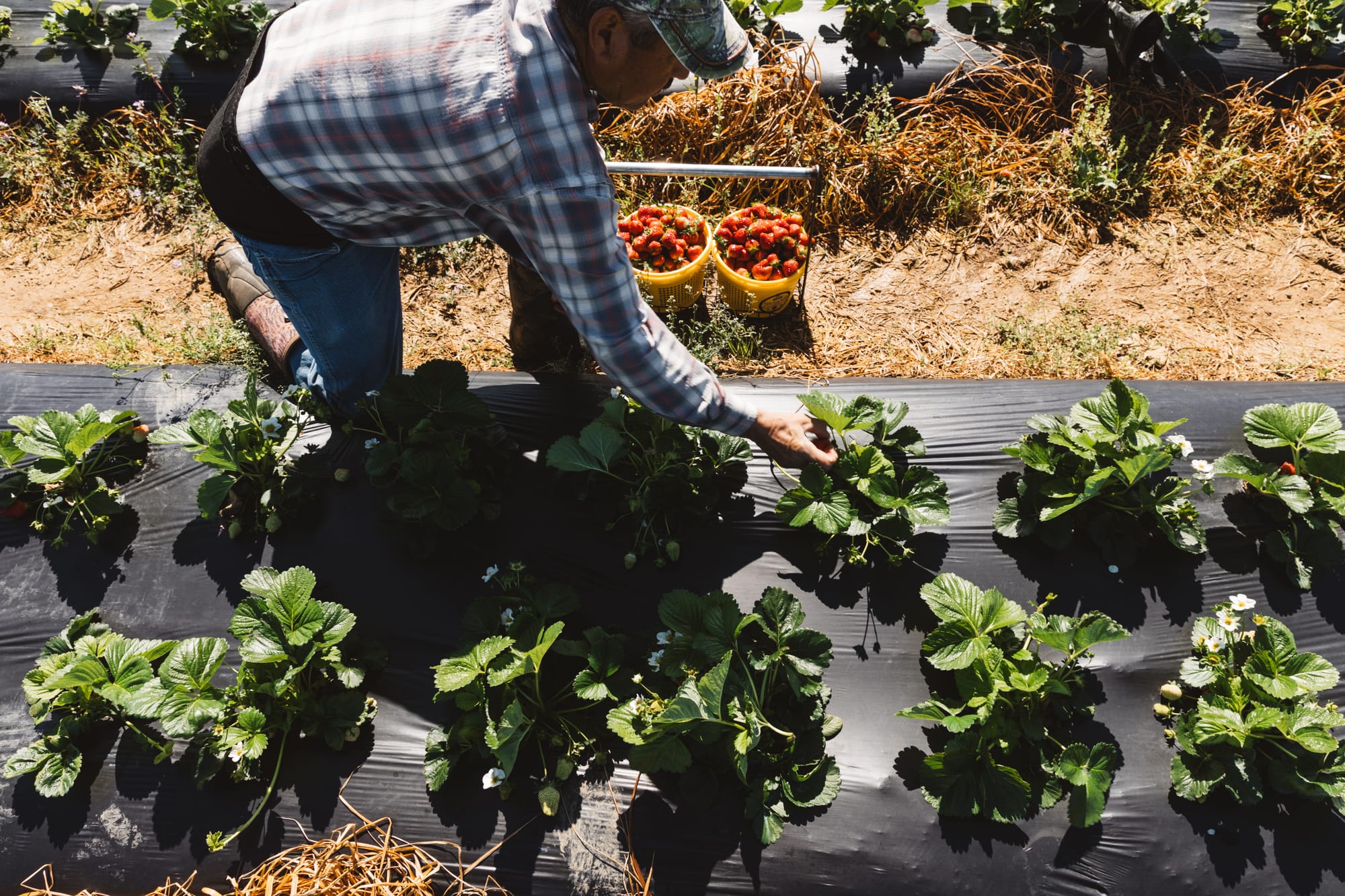
Mullins nudges him; tell them about your dream last night, Pablo.
Pablo looks over from the truck bed.
"I dreamed last night I was picking strawberries," he said. "All day and all night."
Even in his dreams, he's working.
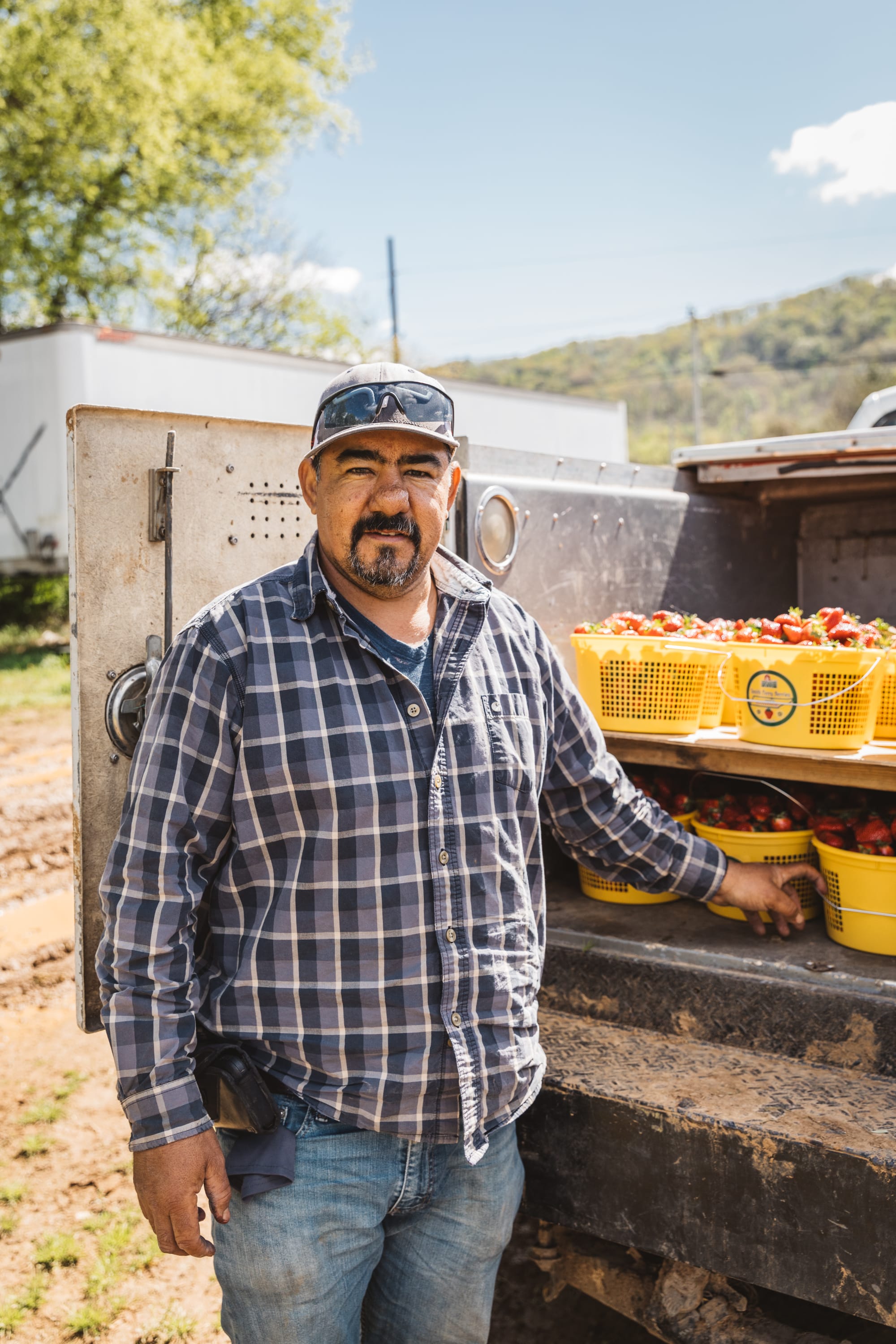
Smith's phone buzzes. A text from the adjacent fields, where cars continue to line up. It's a reminder, as if he needed one: back to work. We need more gallons.
As Smith heads back into his fields, Mullins calls us over. Want you to know something else, he says.
"We do not exchange money. I was raised up to help neighbors in need. We help each other, me and him," Mullins said of Smith. "If I need him, I call him, he comes. 3 am? Yes, I’d show up for him."
These are the things we yearn for, no matter the age: neighbors we trust, friends at 3 am, men and women who work hard, families together, abundant fields, nations at peace, the taste of a sweet meal.
Out in the fields, Smith picks more strawberries, just like his grandfather before him, participating in a process as old as time yet as fragile as fruit on a cold night.
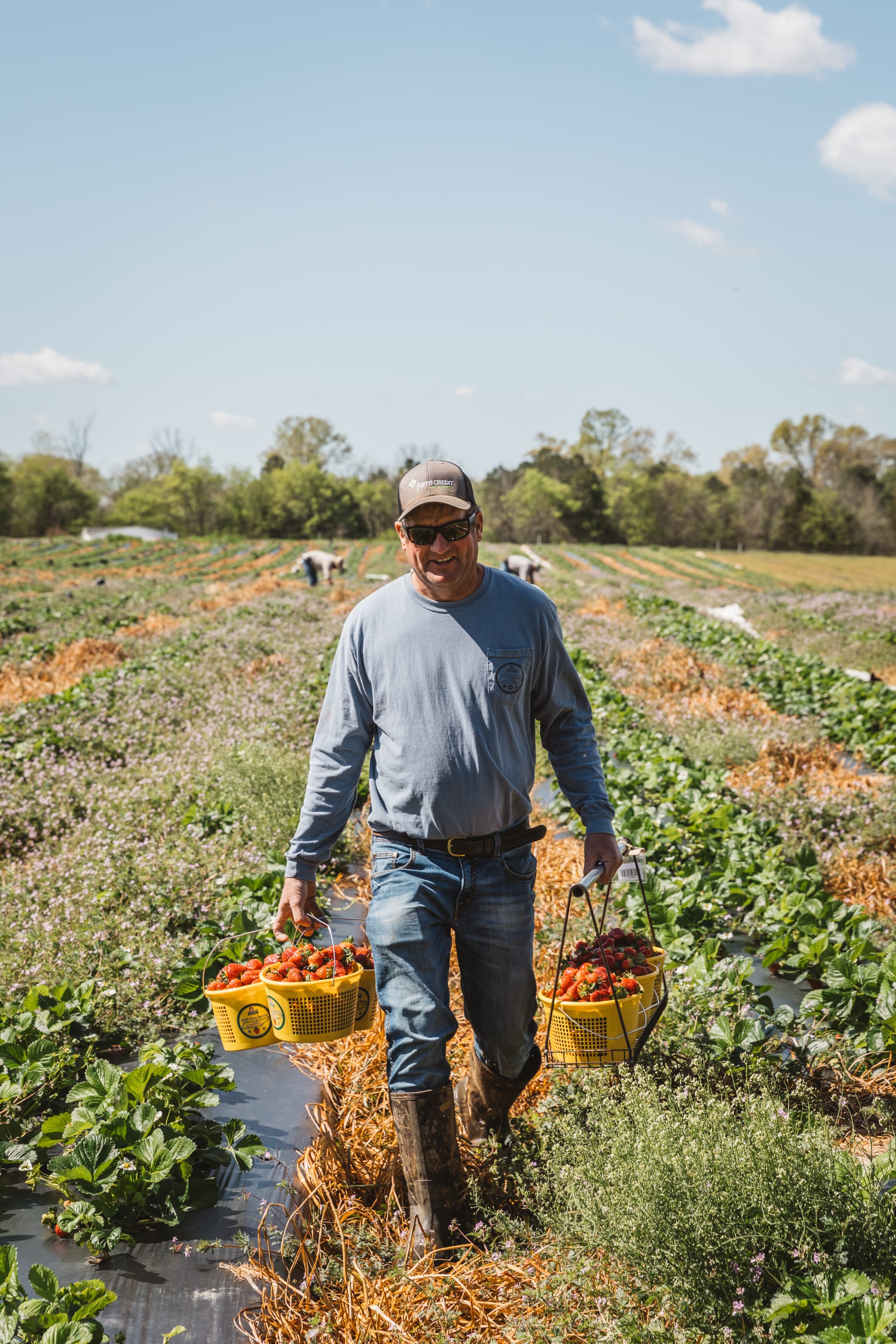
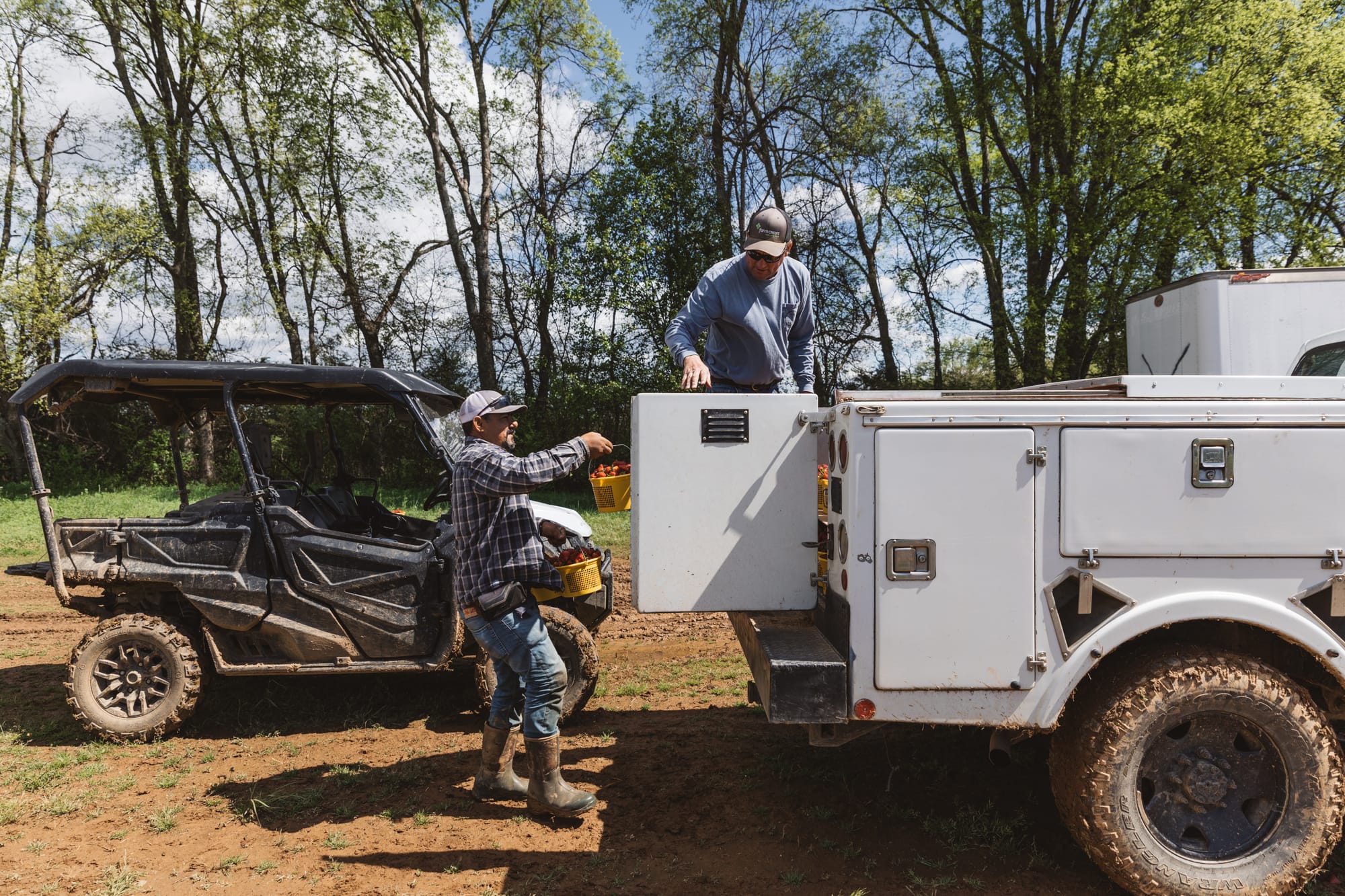
Aubie Smith, Smith-Perry Berries Farm, Ooltewah, Tenn.
All photography by Sarah Unger (sarah@foodasaverb.com)
All design by Alex DeHart
All words by David Cook (david@foodasaverb.com)
Story ideas, questions, feedback? Interested in sponsorship or advertising opportunities? Email us: david@foodasaverb.com and sarah@foodasaverb.com.
This story is 100% human generated; no AI chatbot was used in the creation of this content.
Food as a Verb thanks our sustaining partners for their generous support.





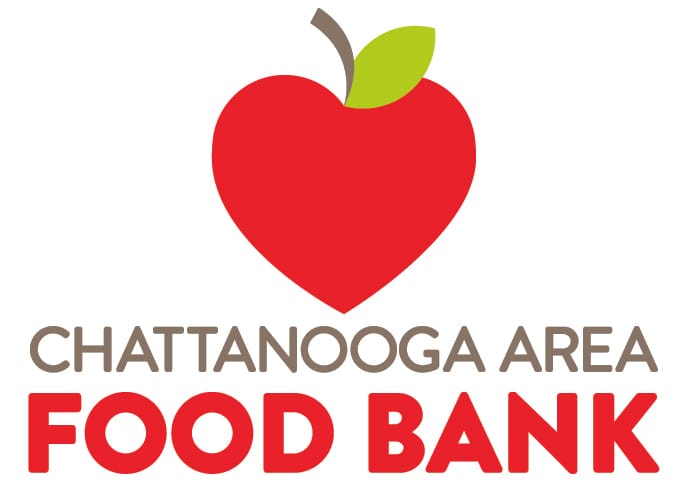
Society of Work is a shared coworking space designed with business flexibility in mind and the resources to help like-minded people connect and create amazing things together. From private offices to 24/7 coworking memberships, we provide the space you need to get work done. For more than 25 years, Lupi's has served locally-sourced, creatively made and award-winningly delicious pizza pies from five nearby locations. Female-and-locally owned, Divine Goods offers beautifully curated gifts for every occasion. Be divine and send someone special a Divine Goods gift - locally sourced when possible, and always thoughtful. Tucker Build offers Chattanooga a commercial construction firm made up of design-build experts specializing in the planning, building and managing process. Niedlov's Bakery & Cafe, a Main St. anchor, has elevated our city's bakery experience to beautiful levels while strengthening community in immeasurable ways. The Chattanooga Area Food Bank believes that no one should go hungry, and through our network of over 250 hunger-relief partners, we provide equitable access to food and resources to end hunger today and build pathways for a healthy, hunger-free future tomorrow.
